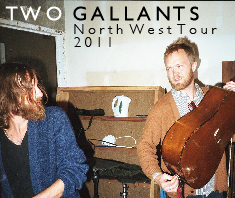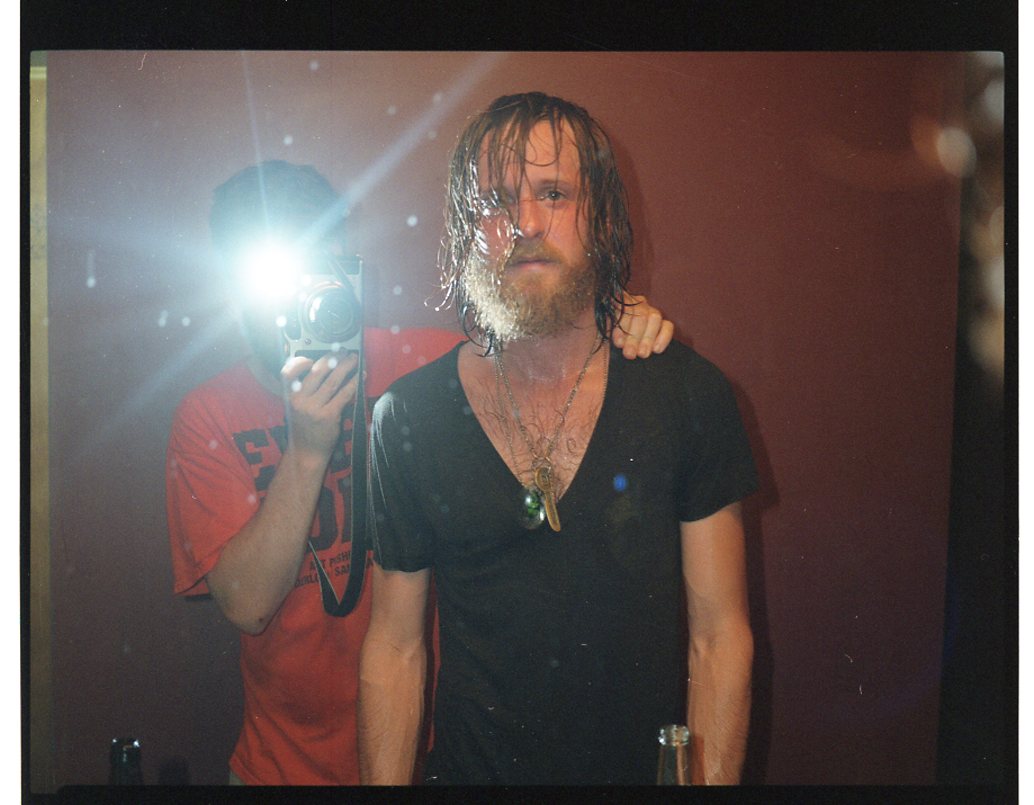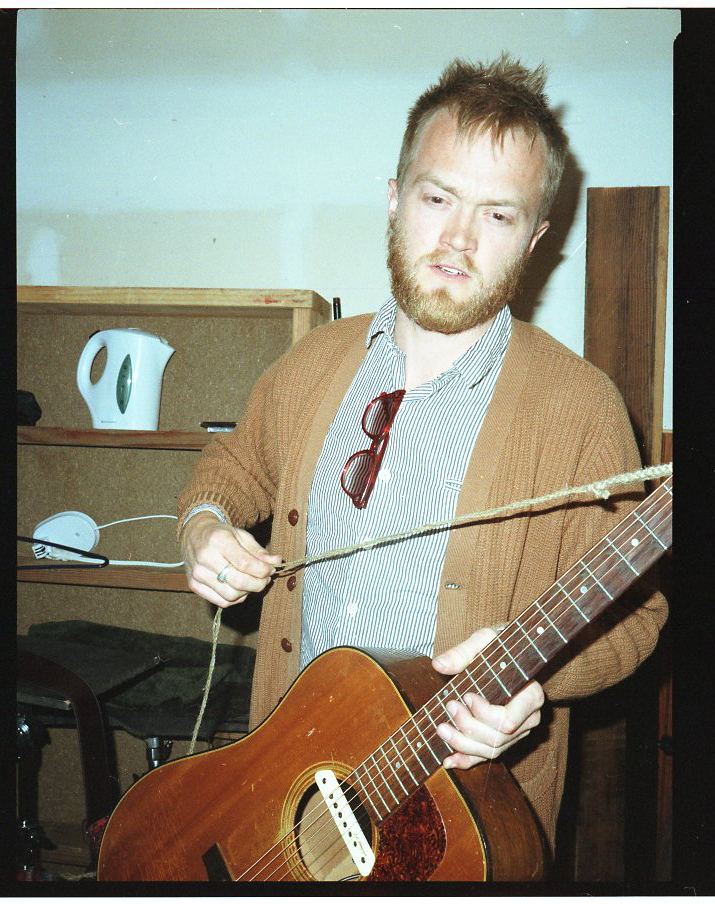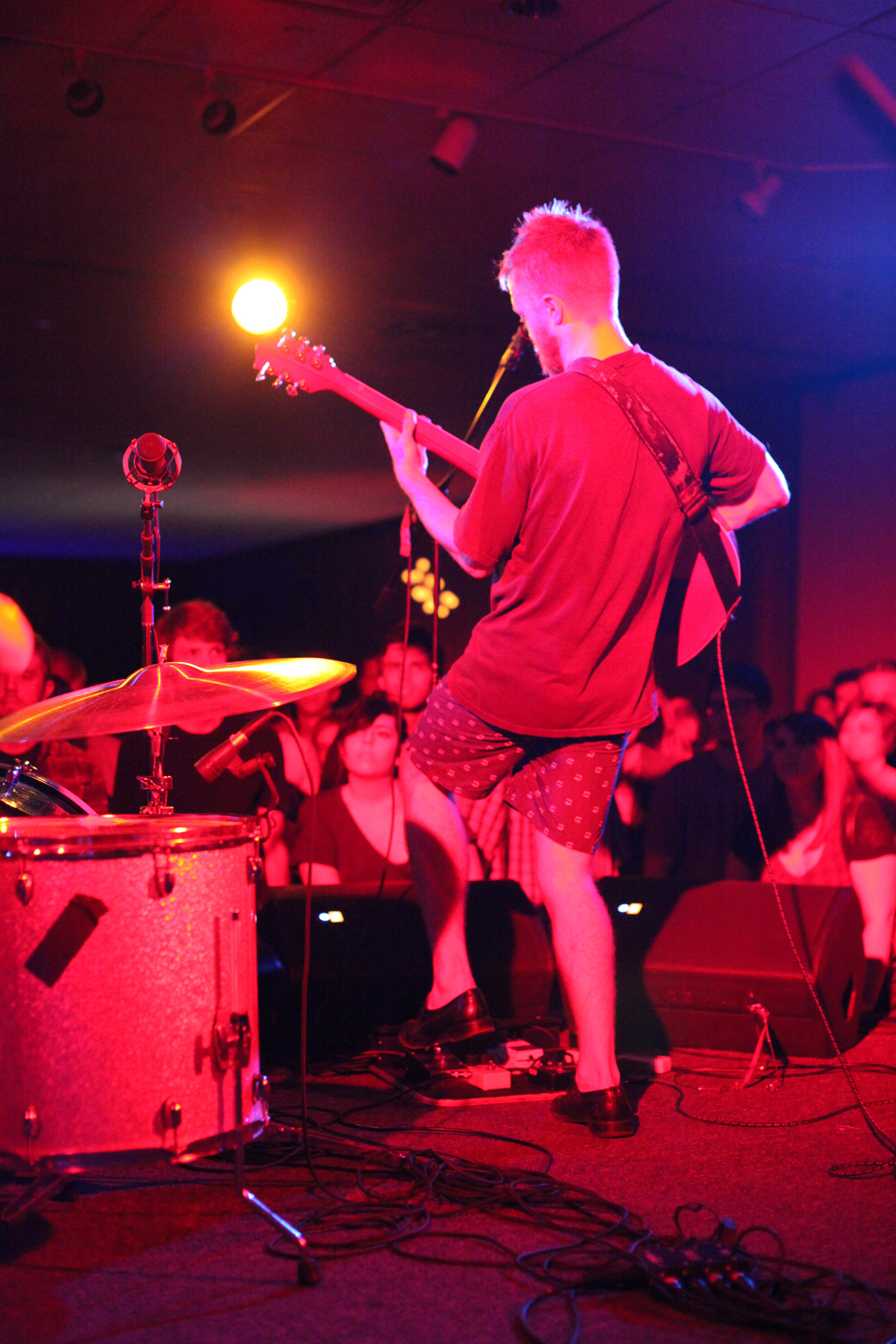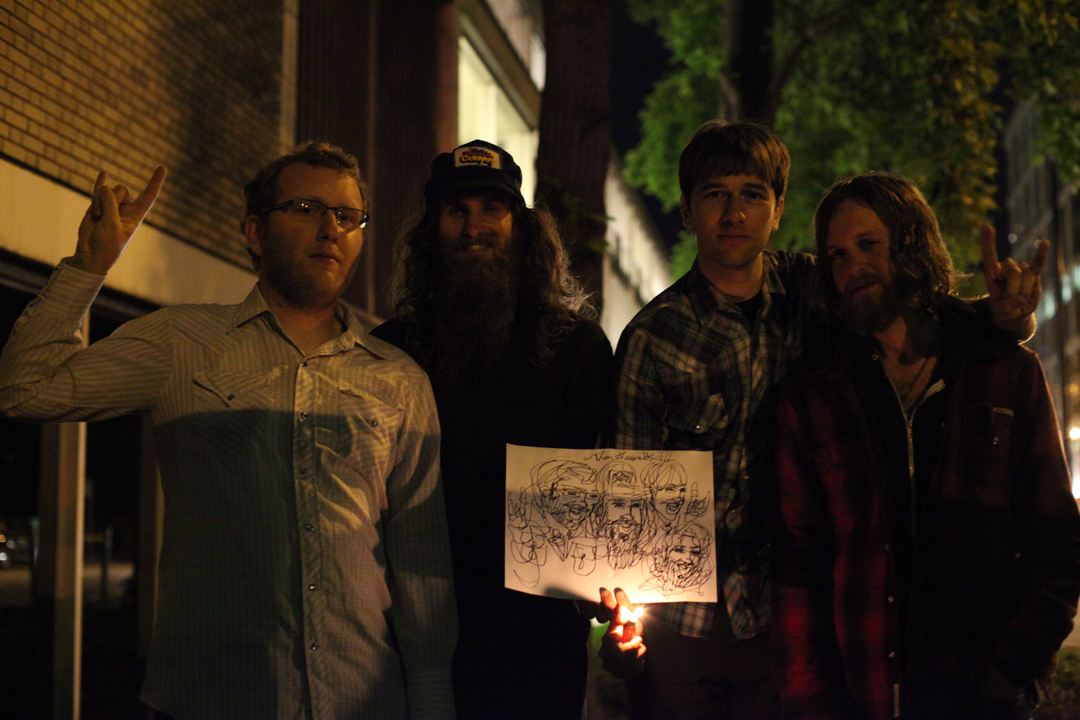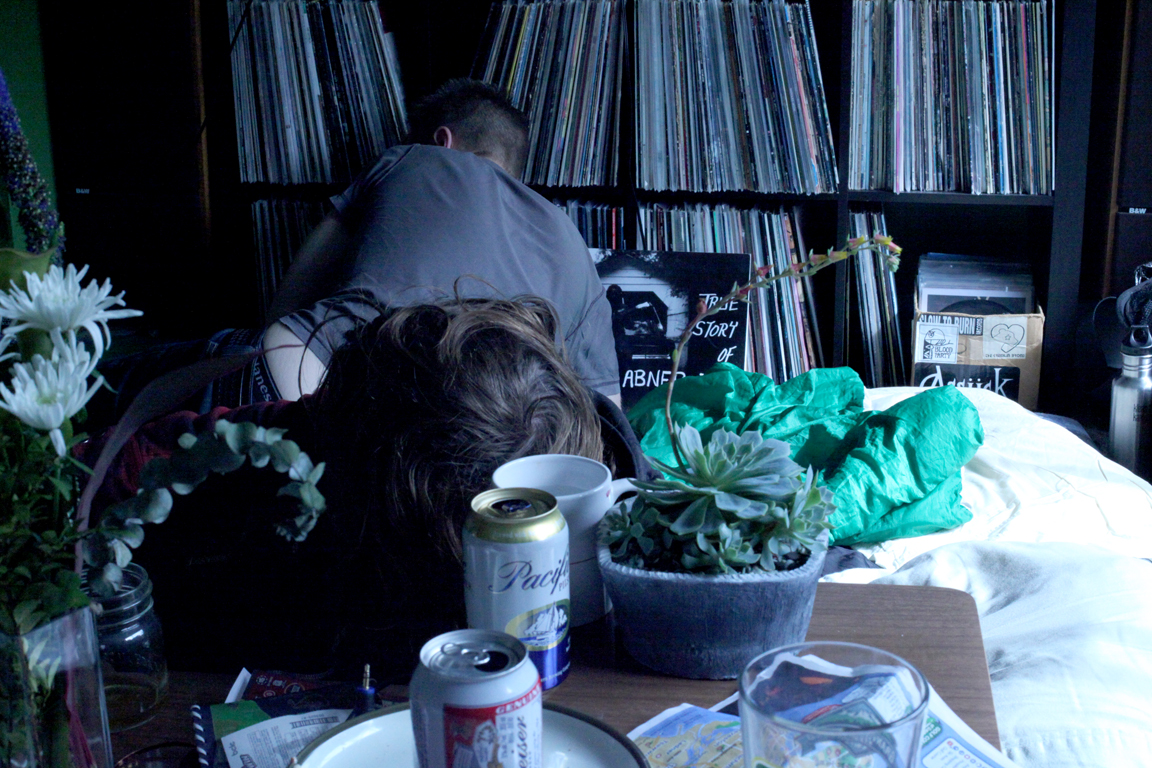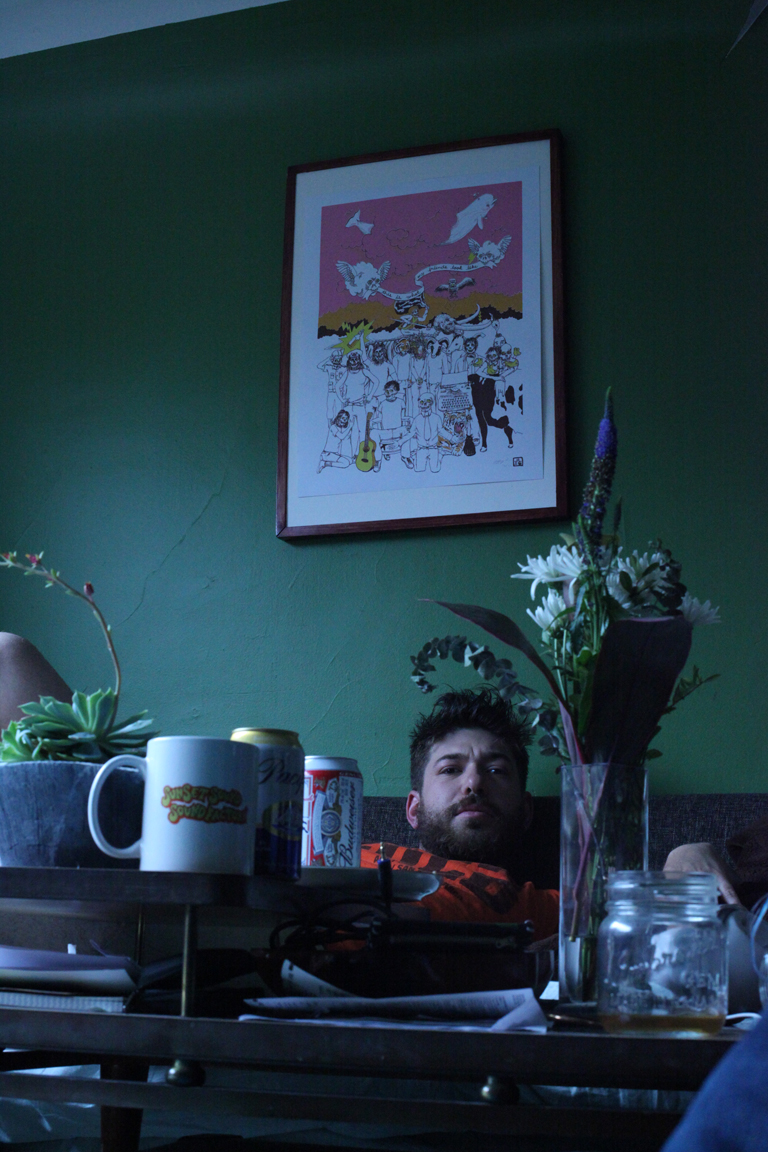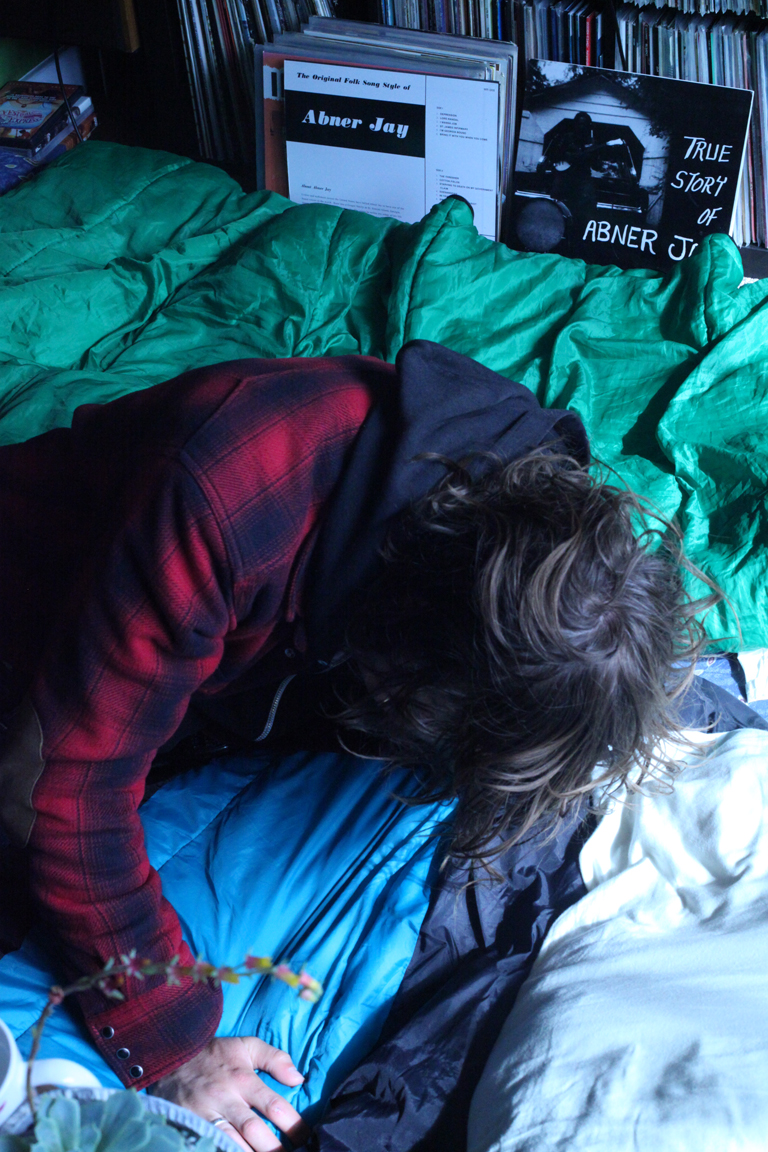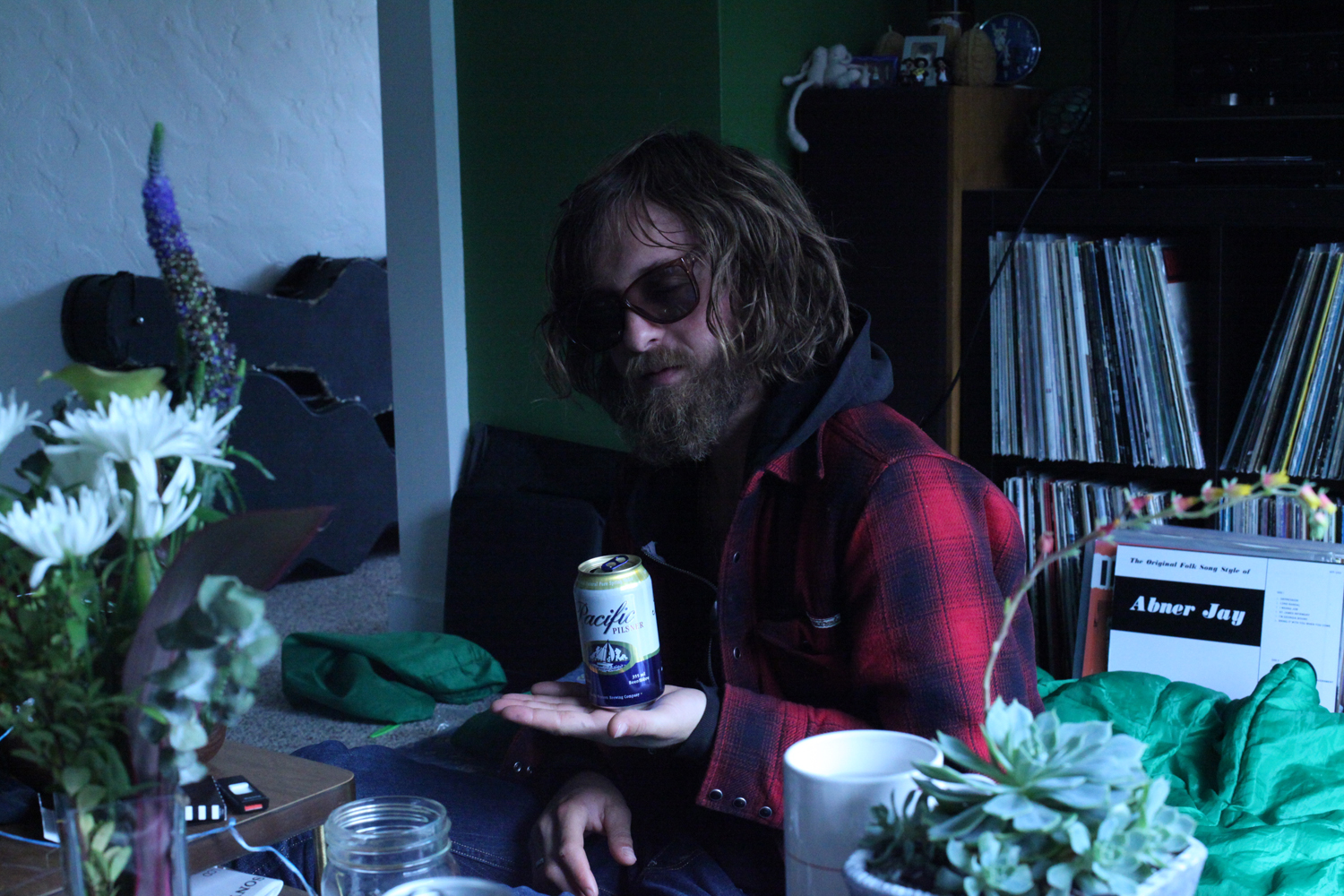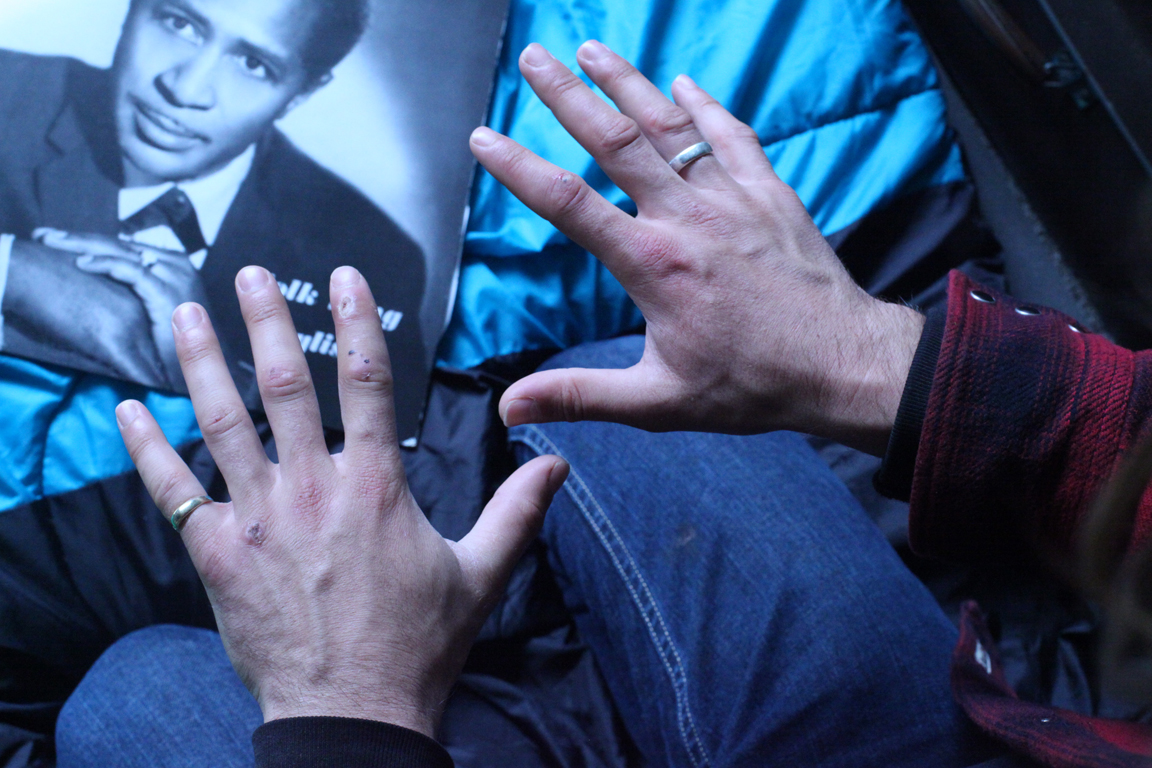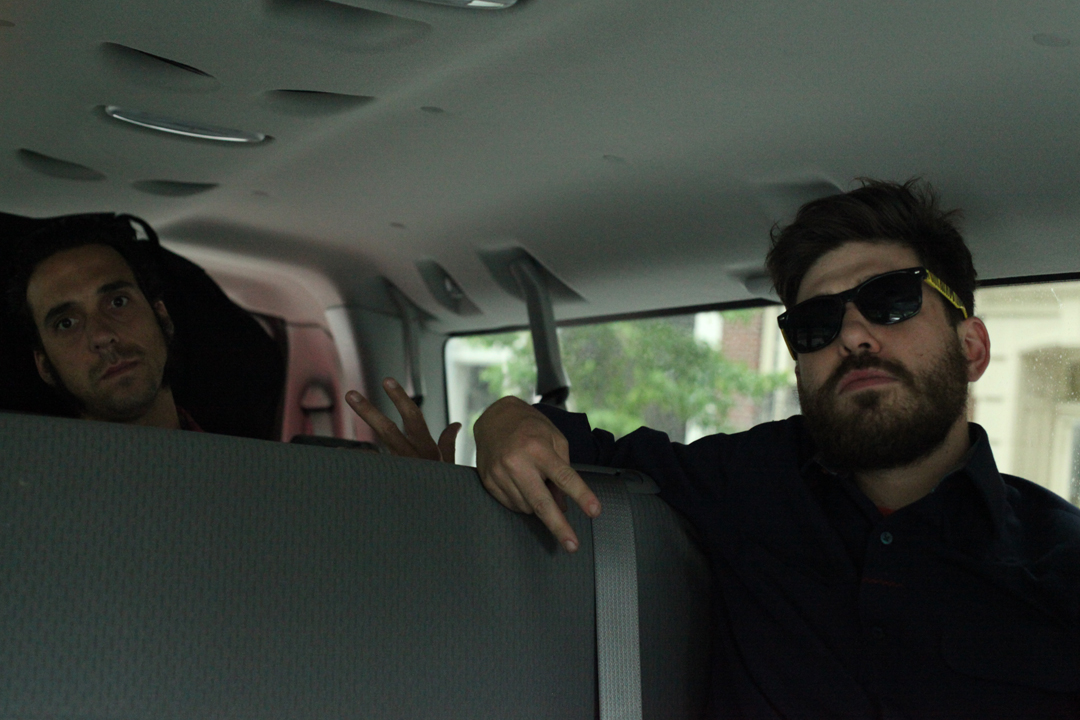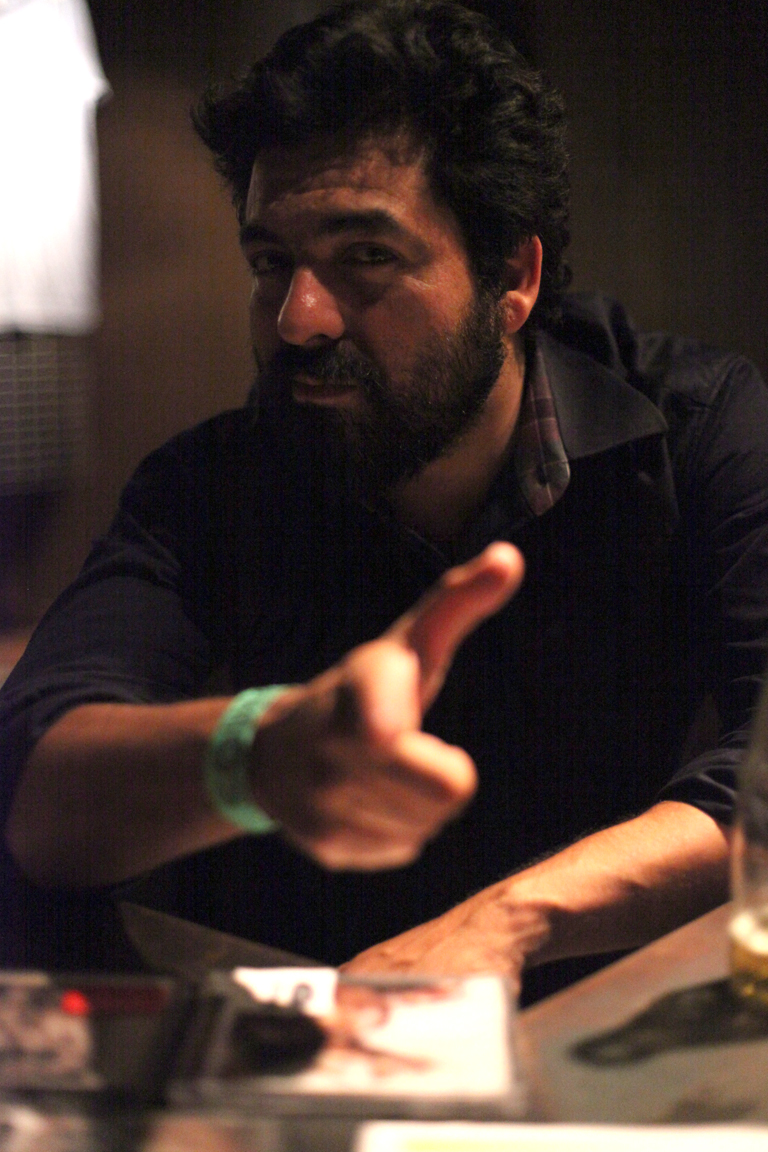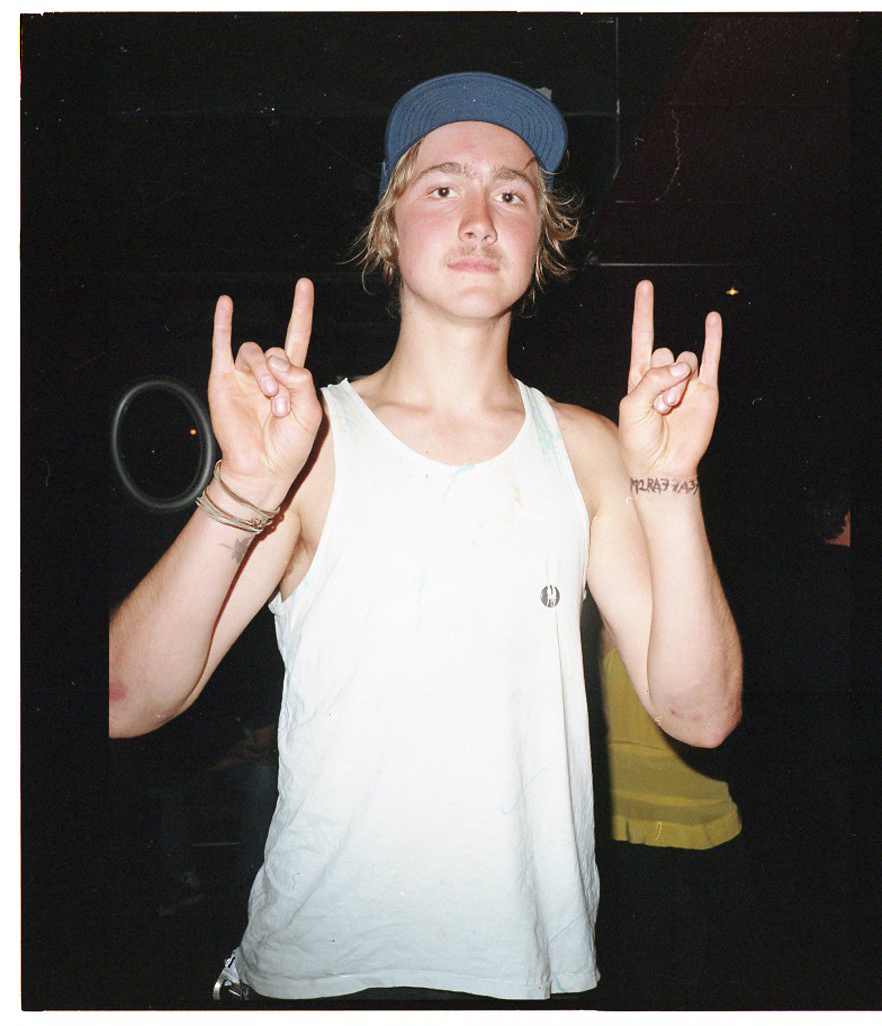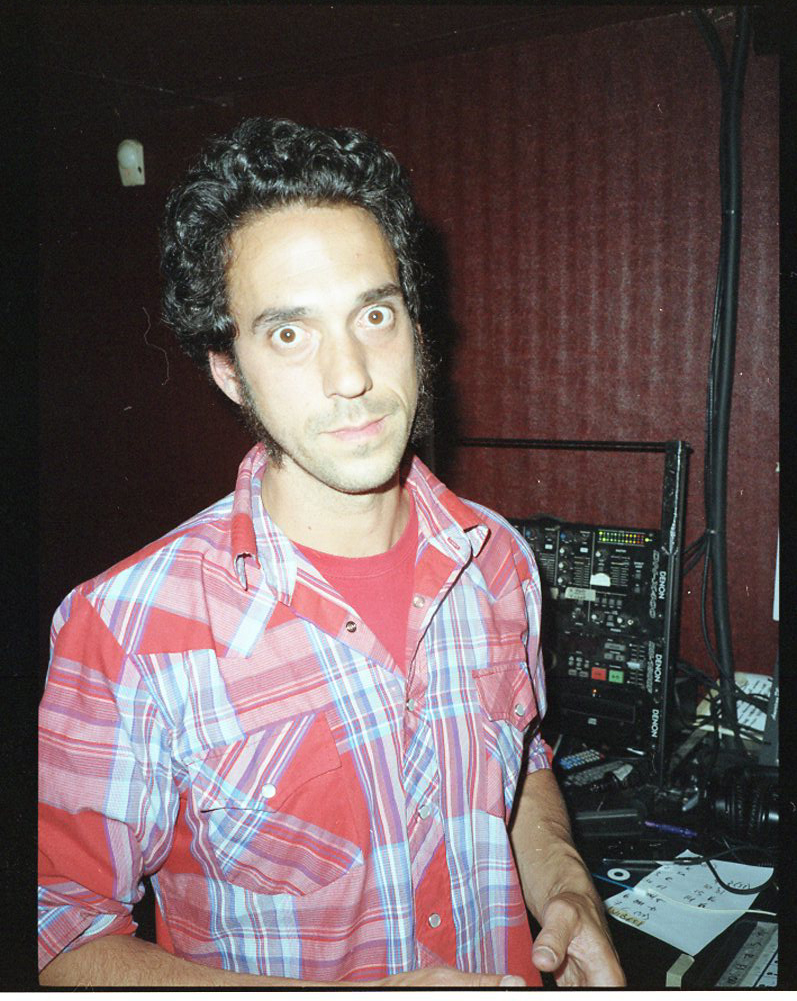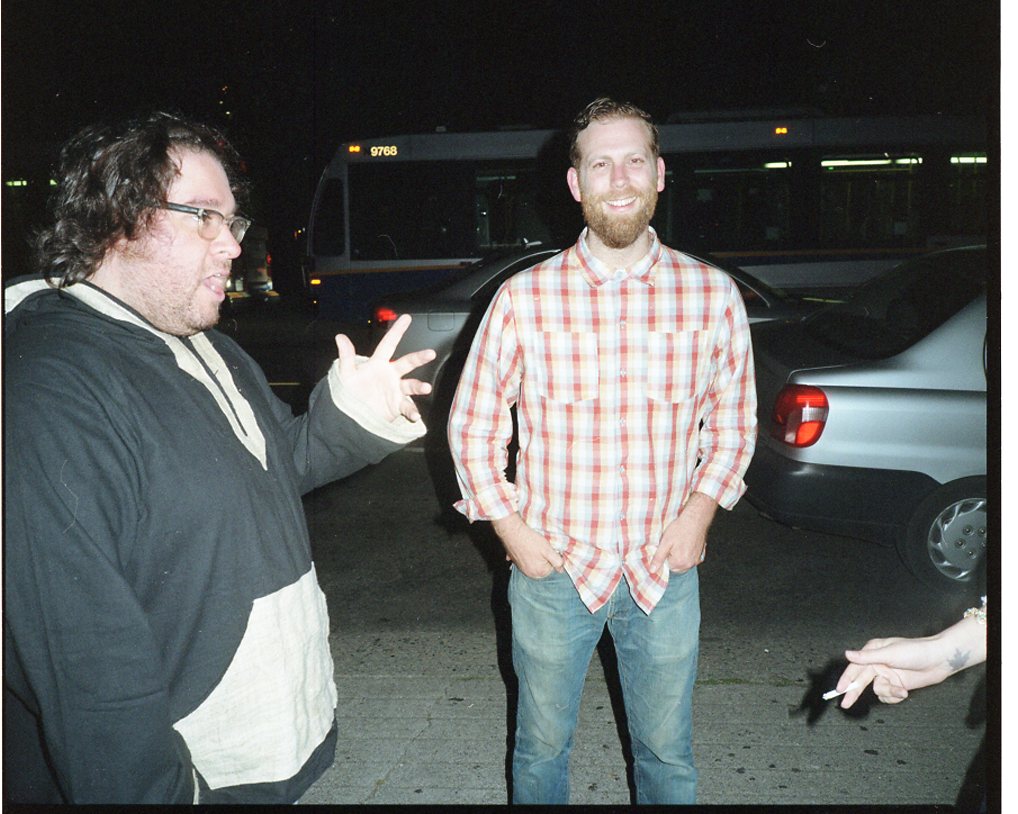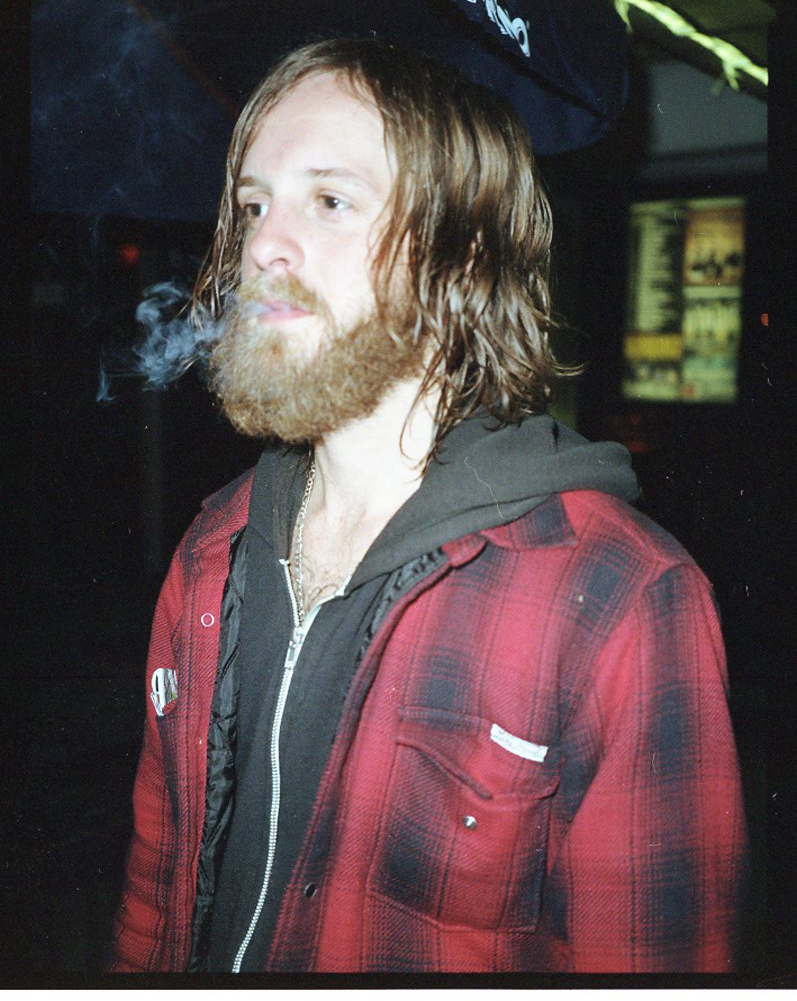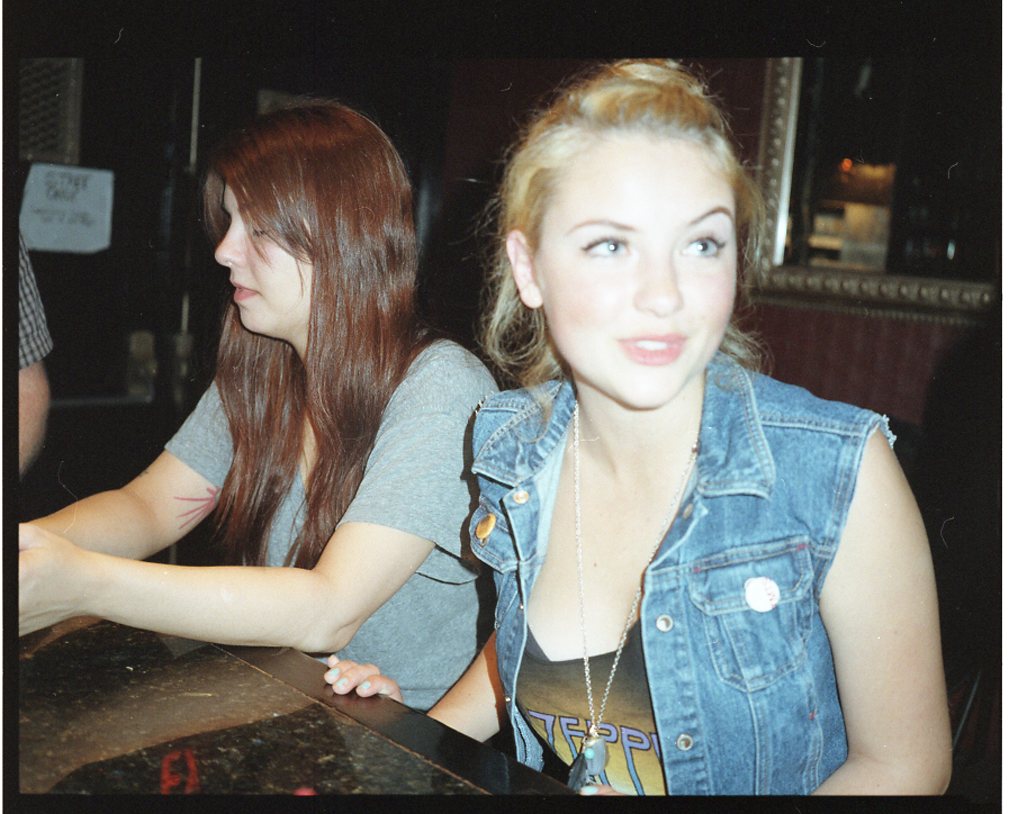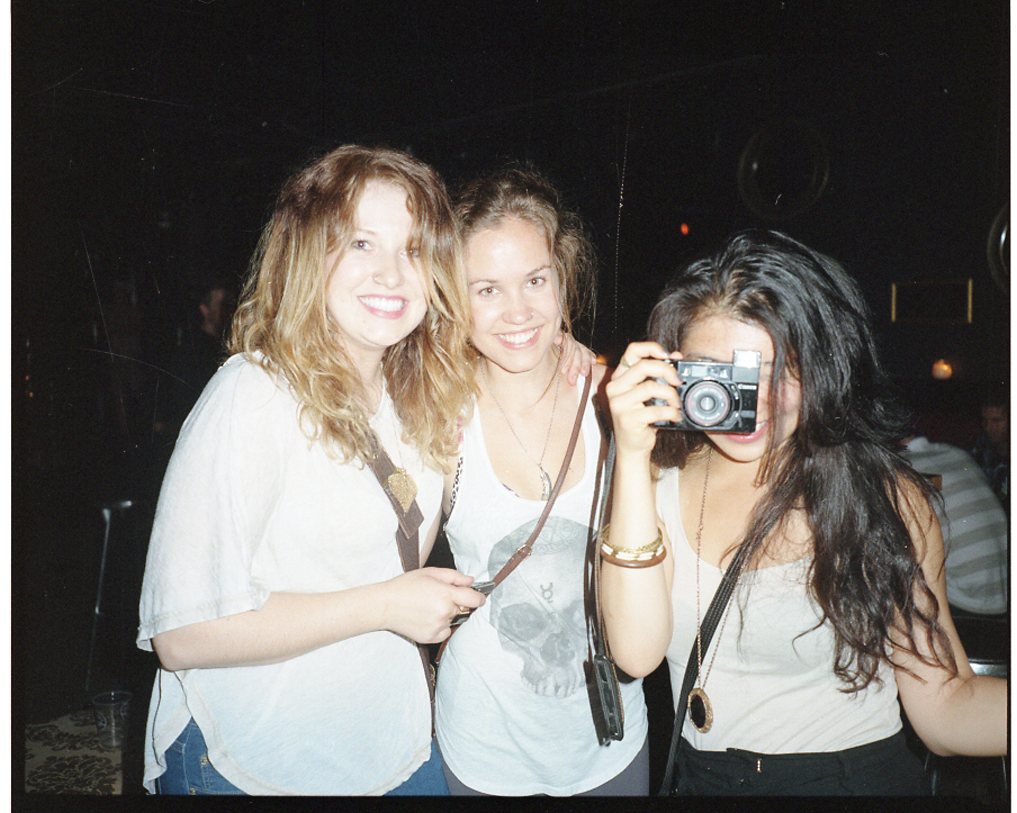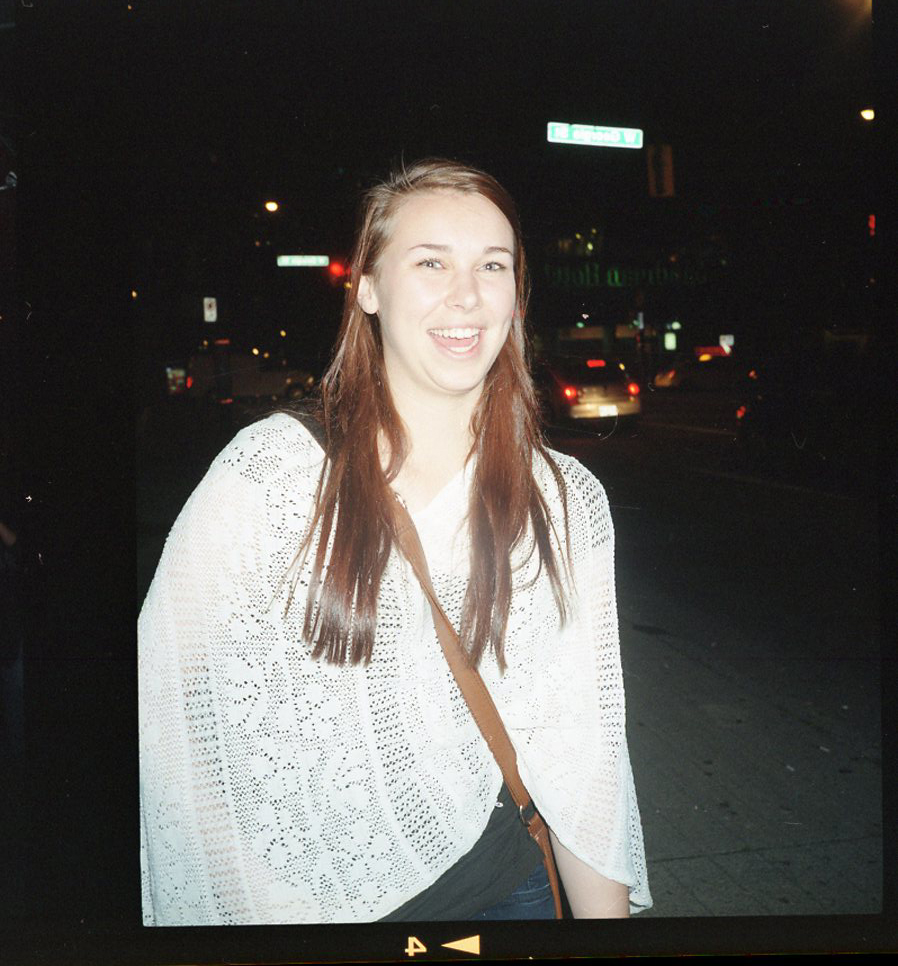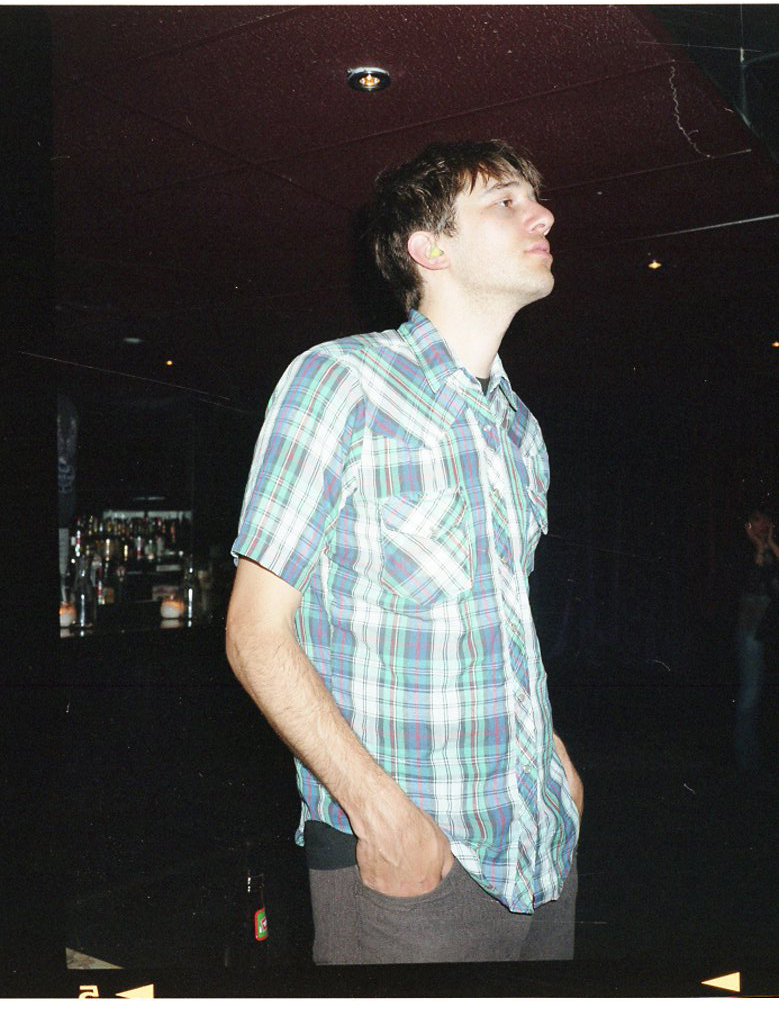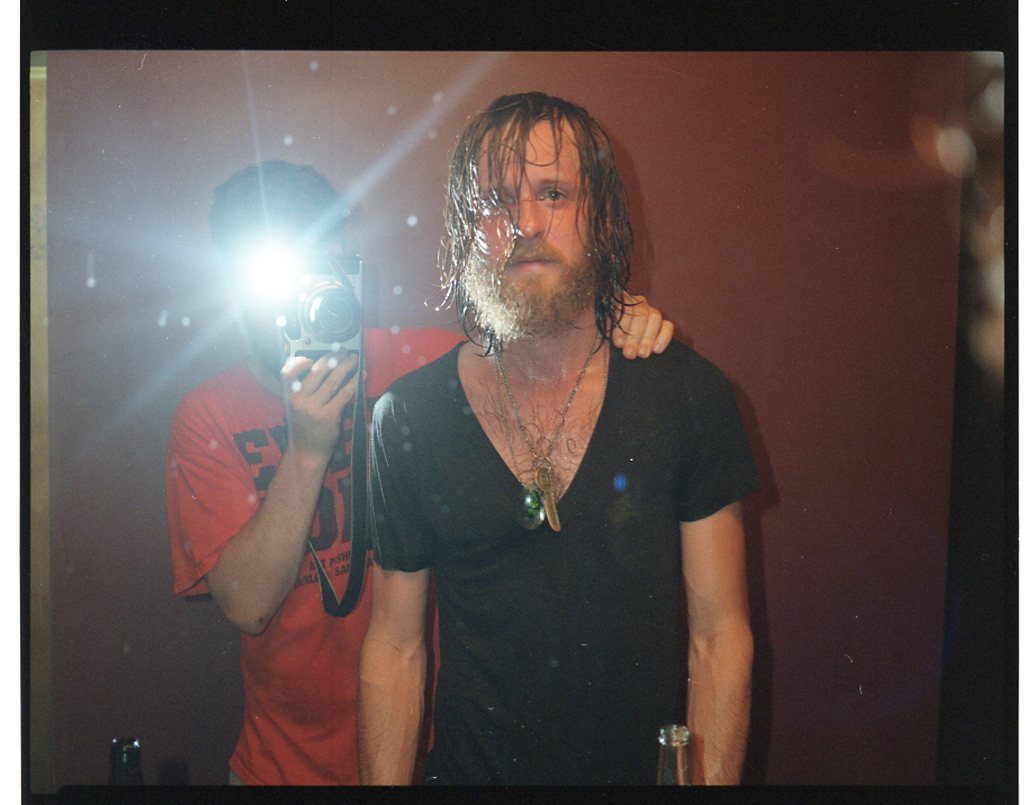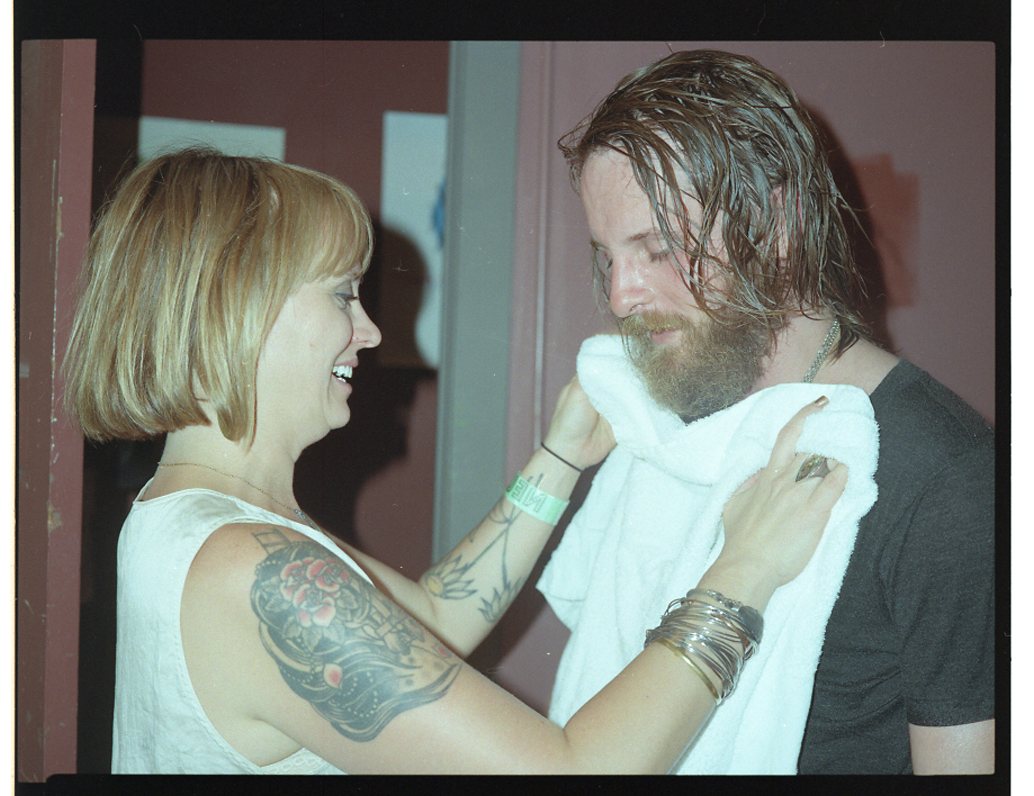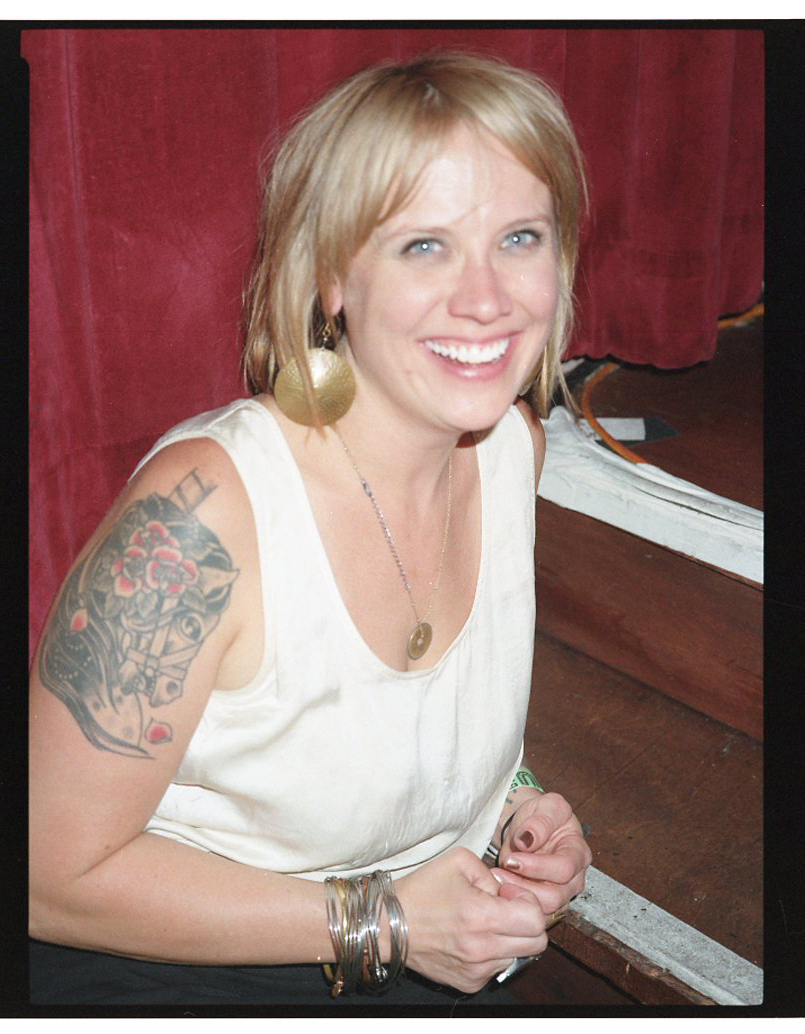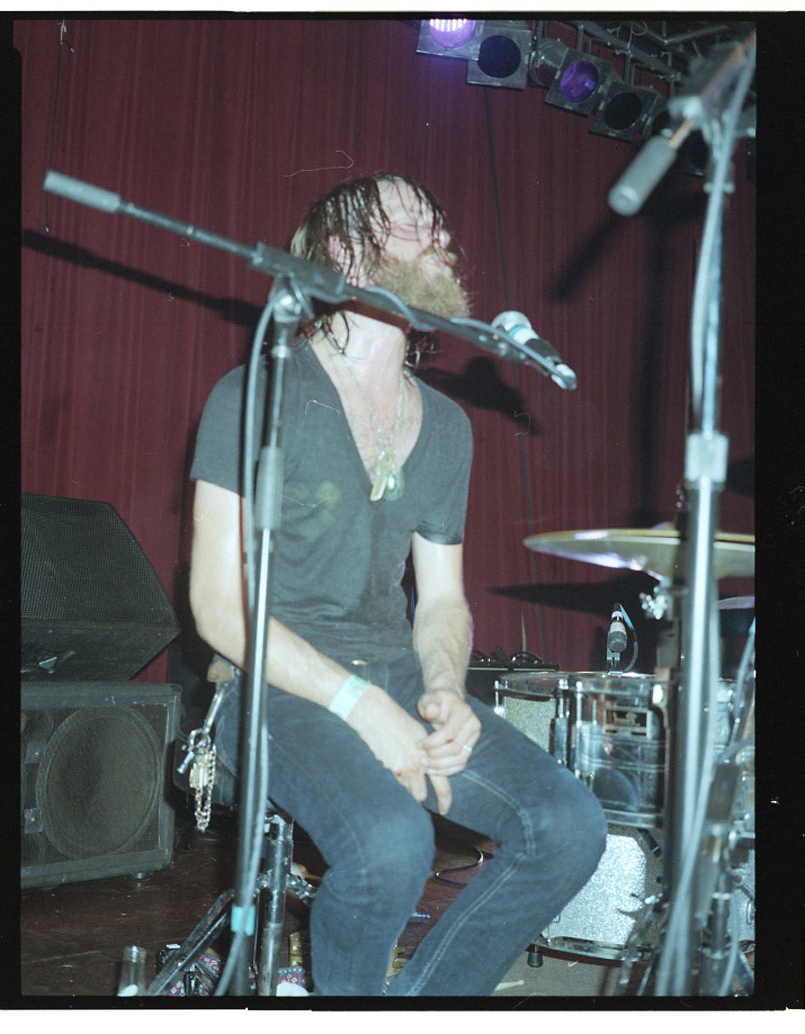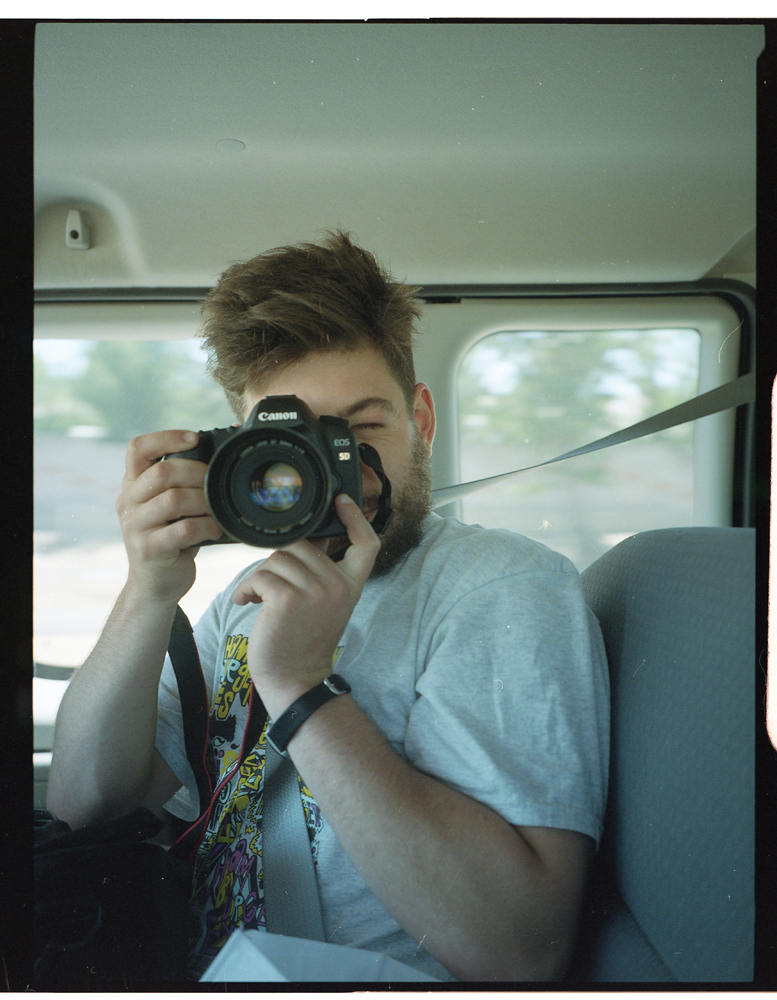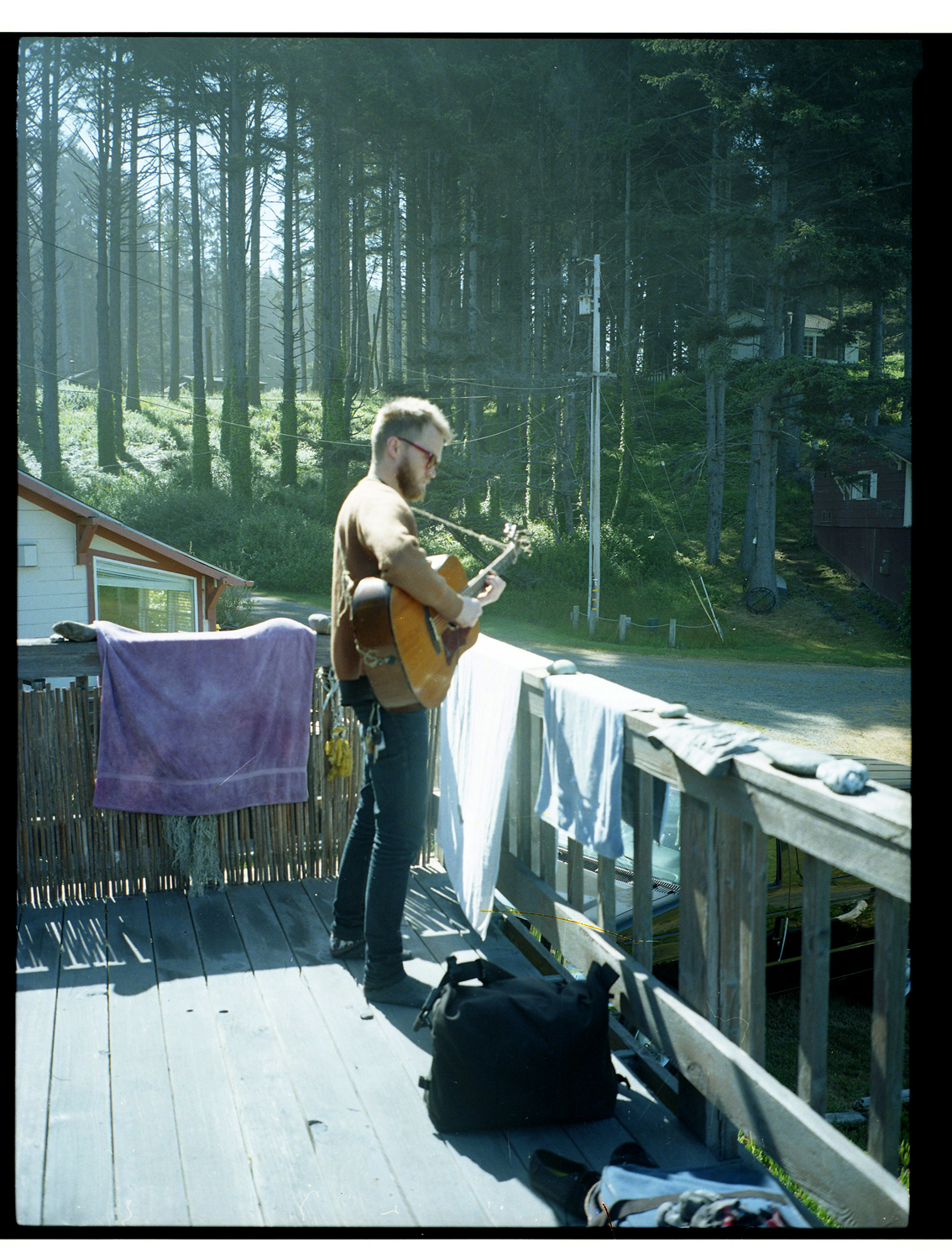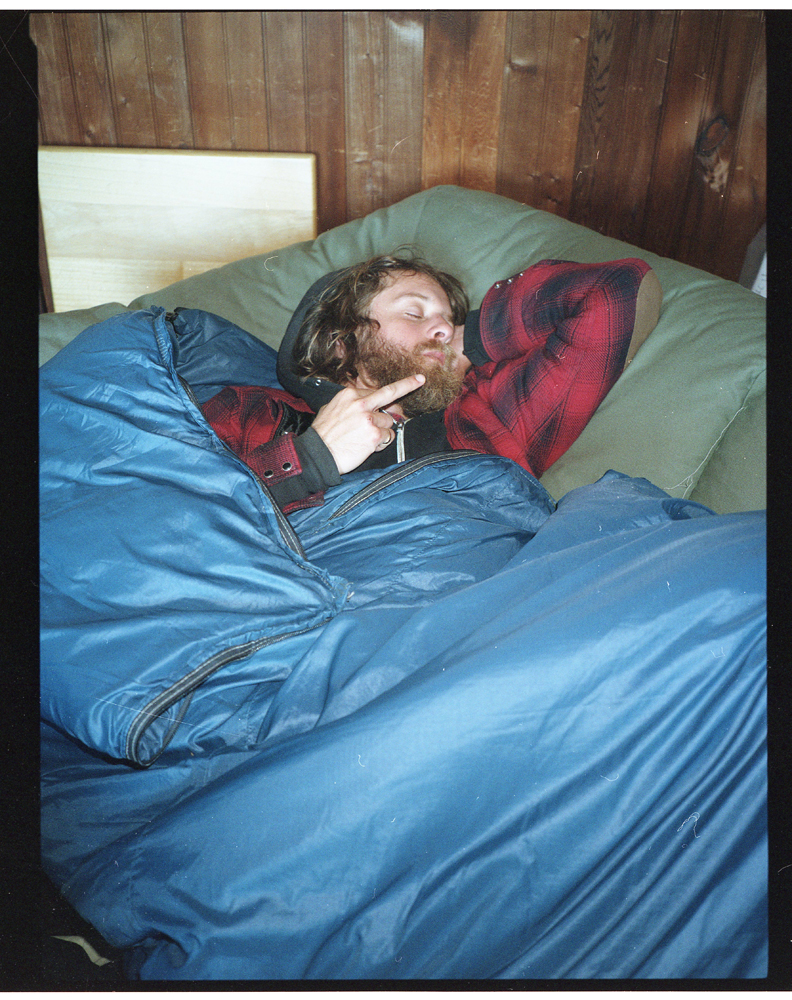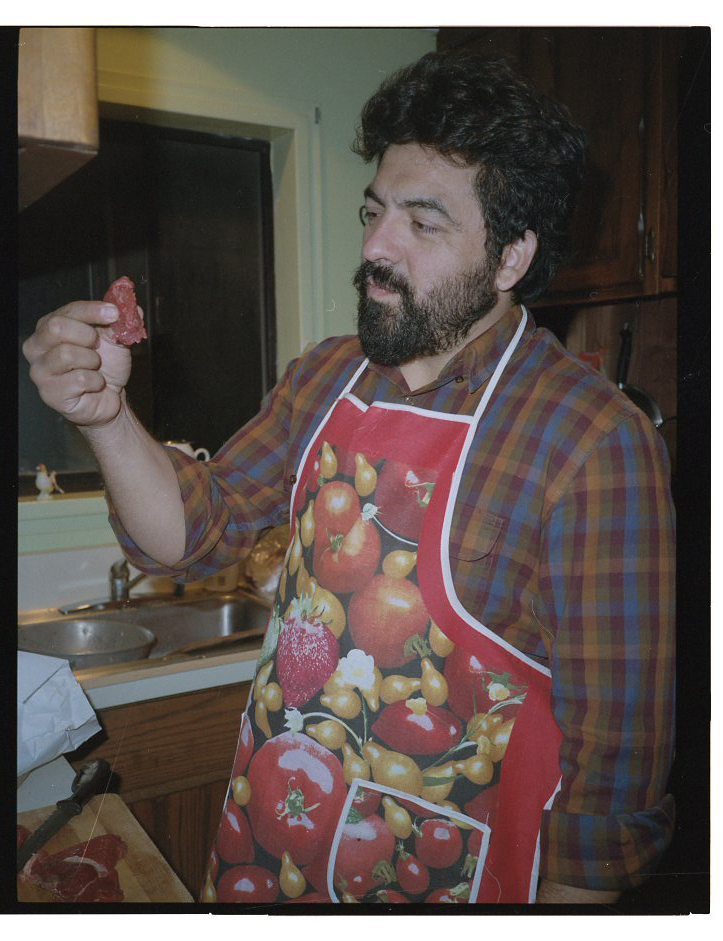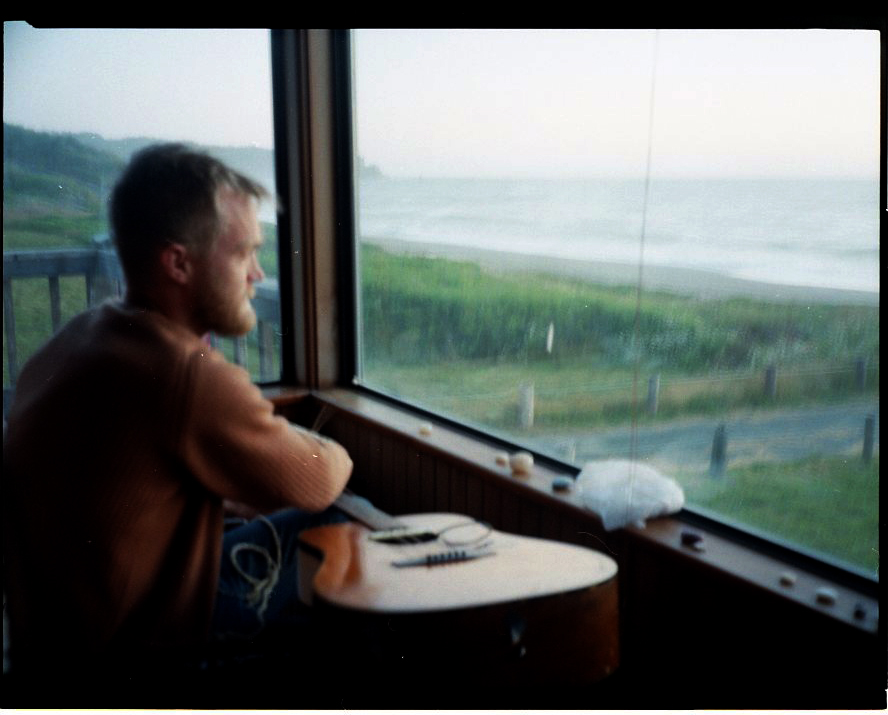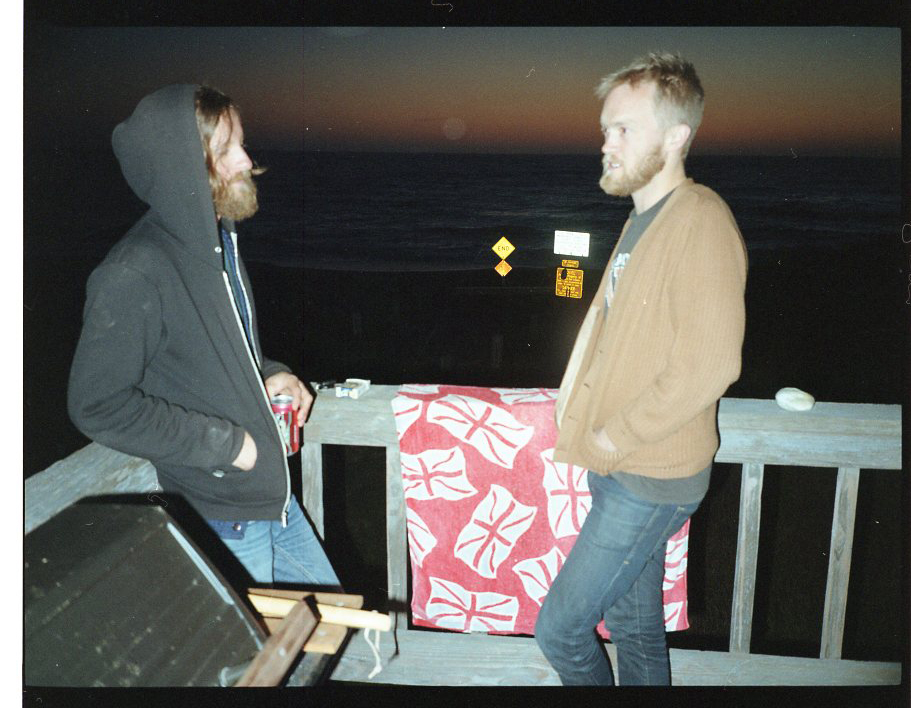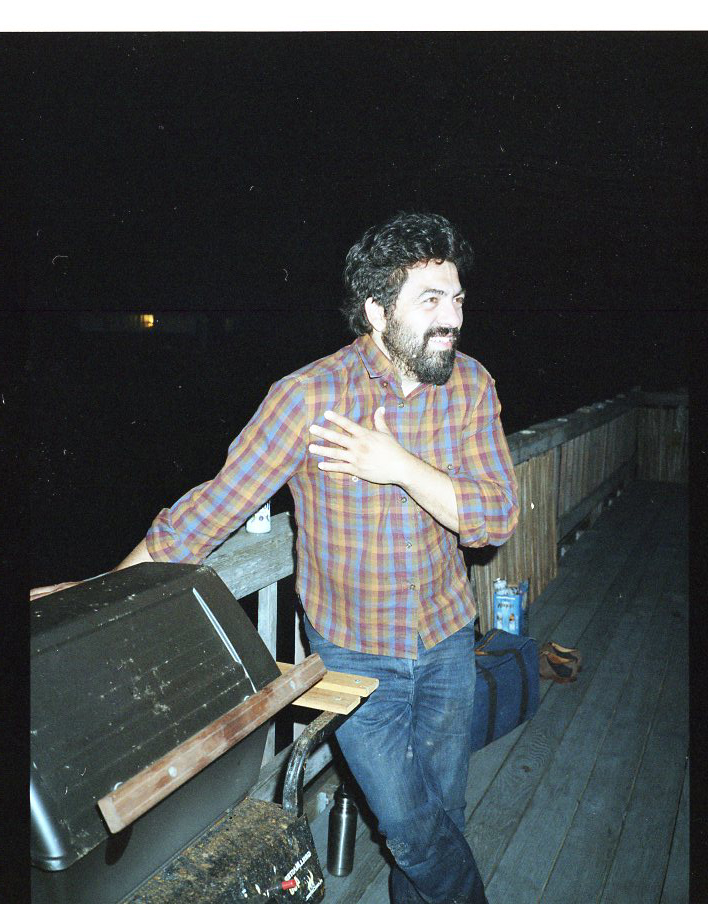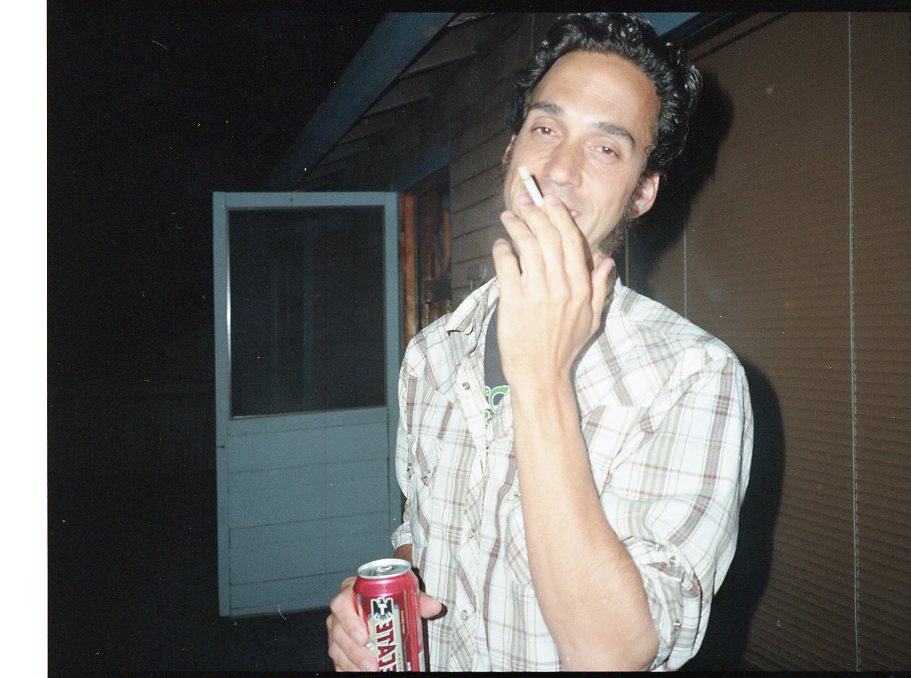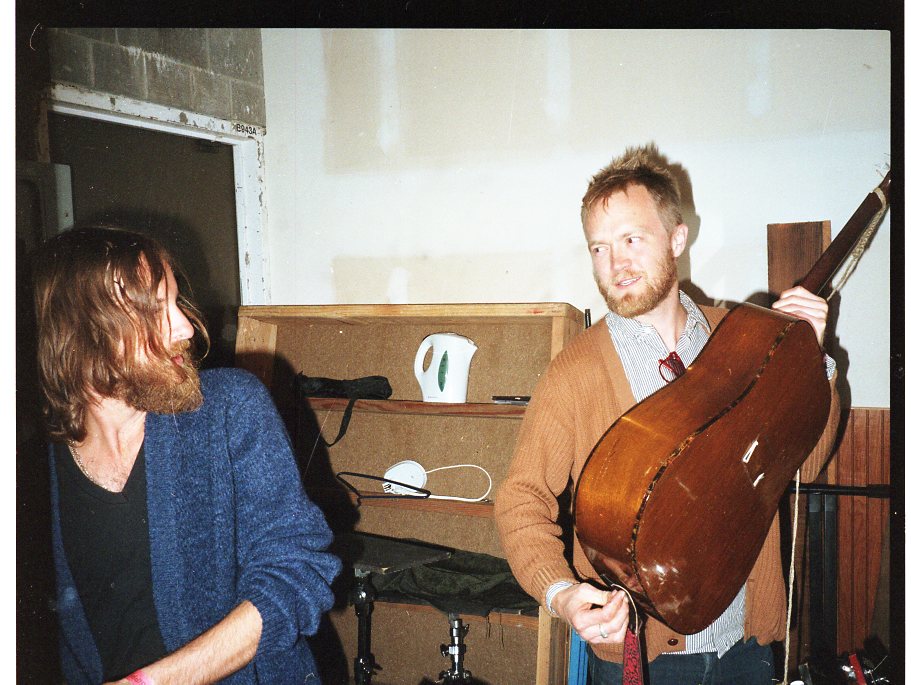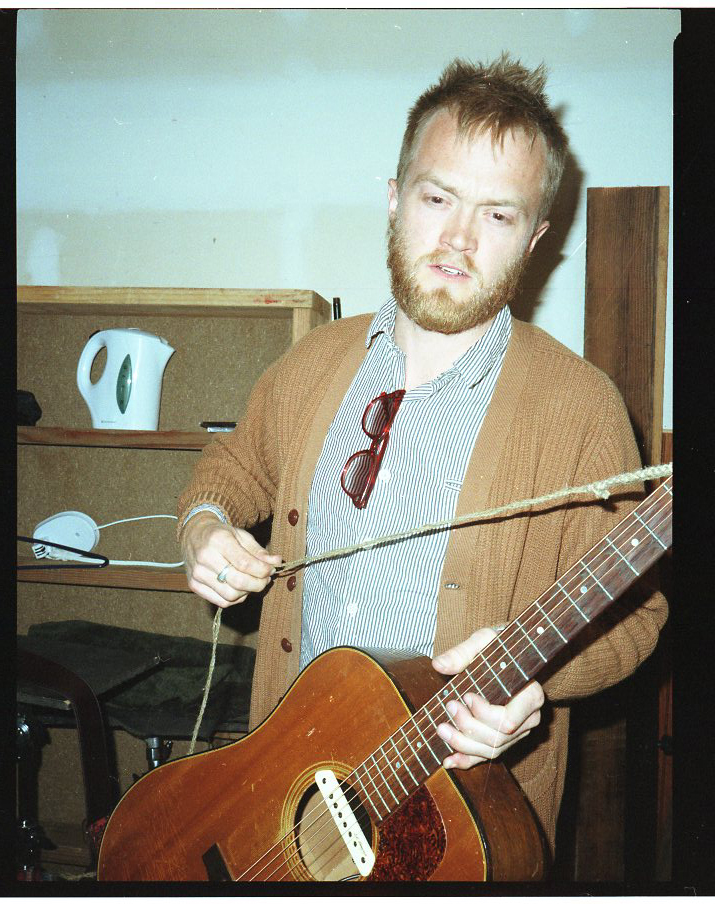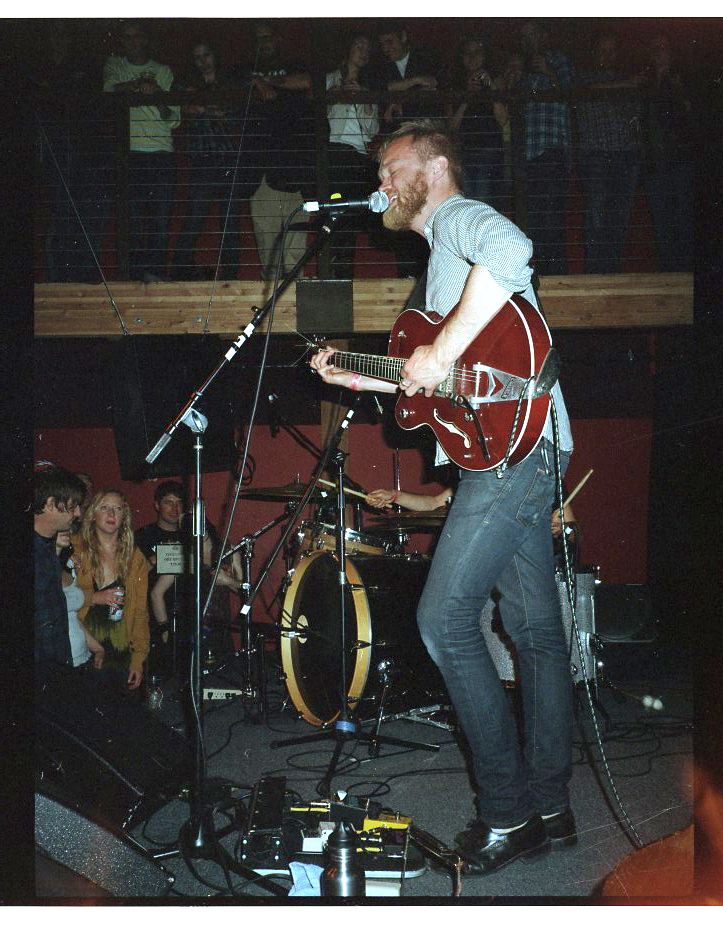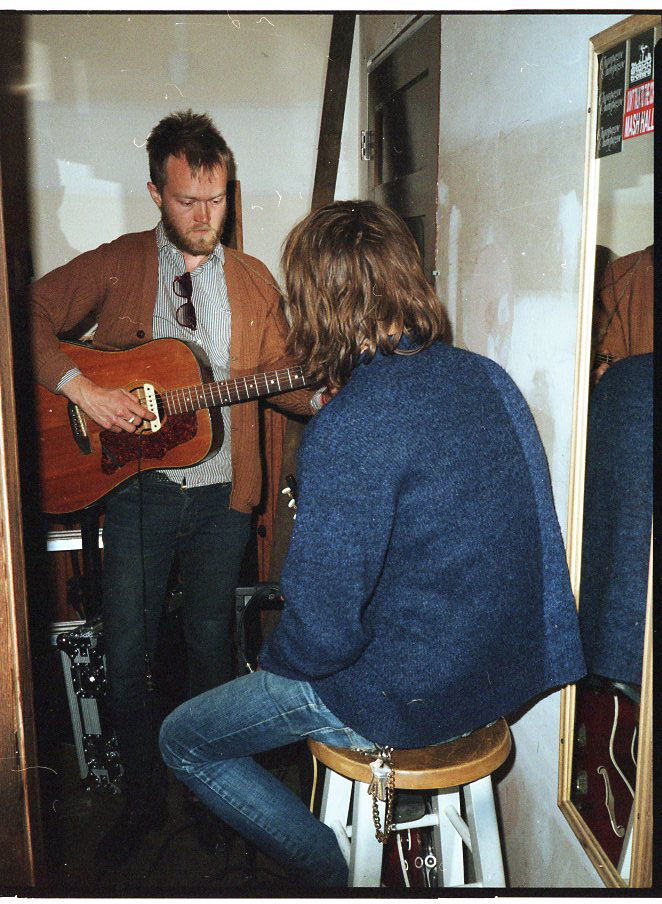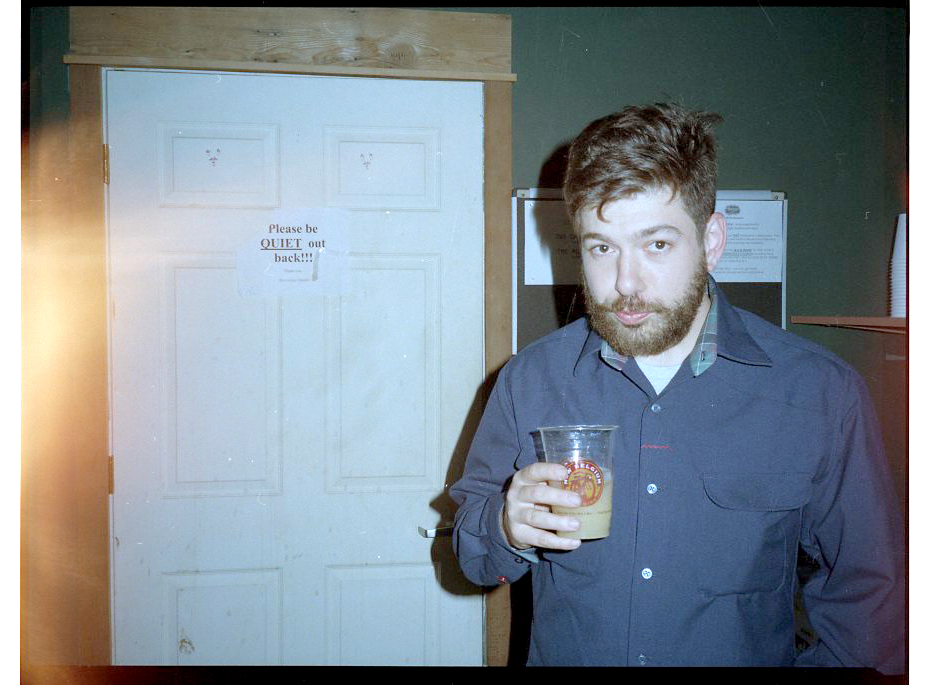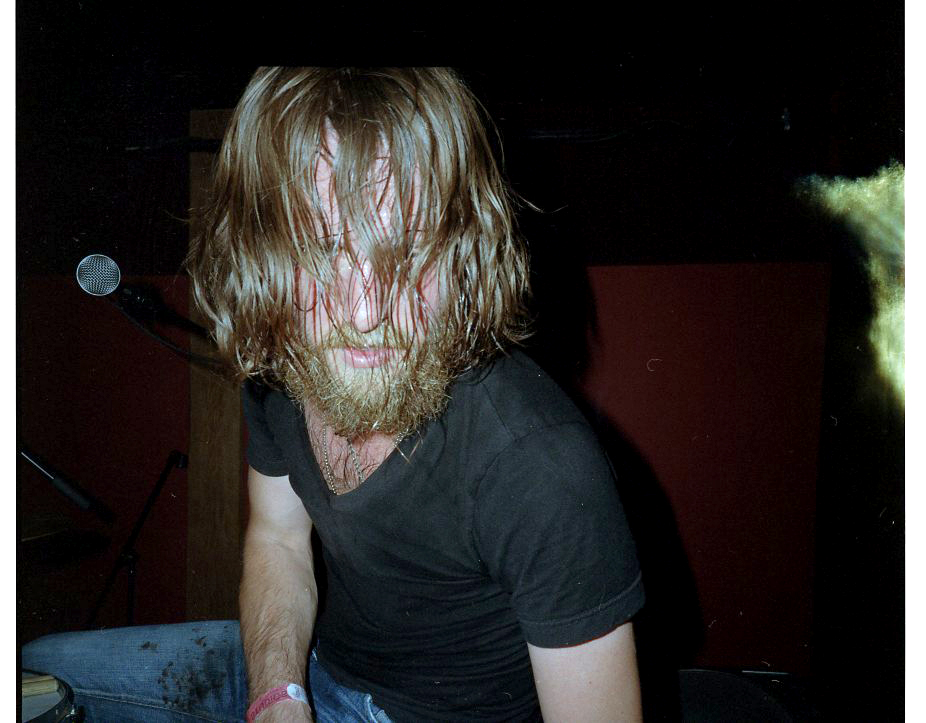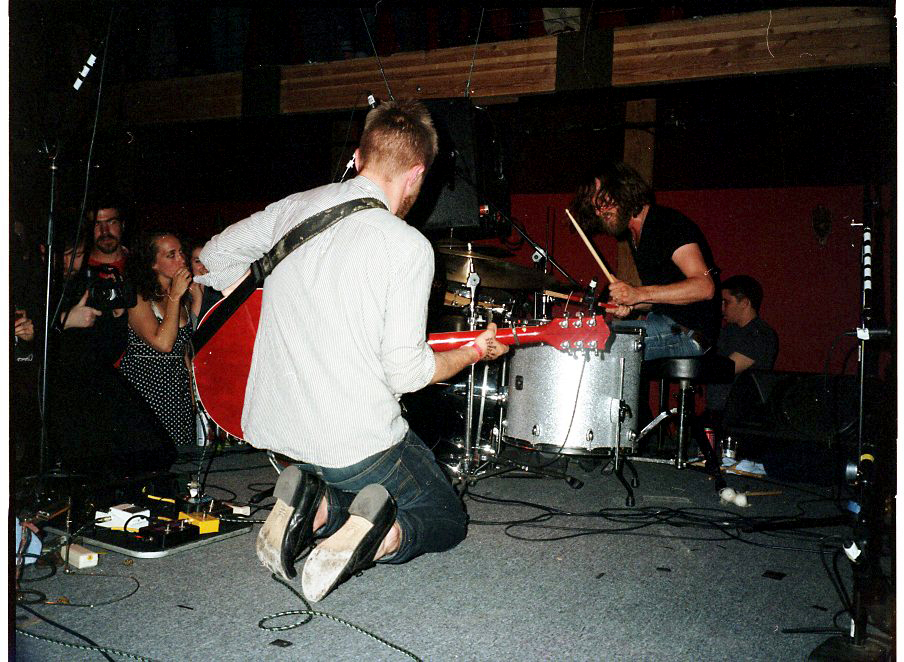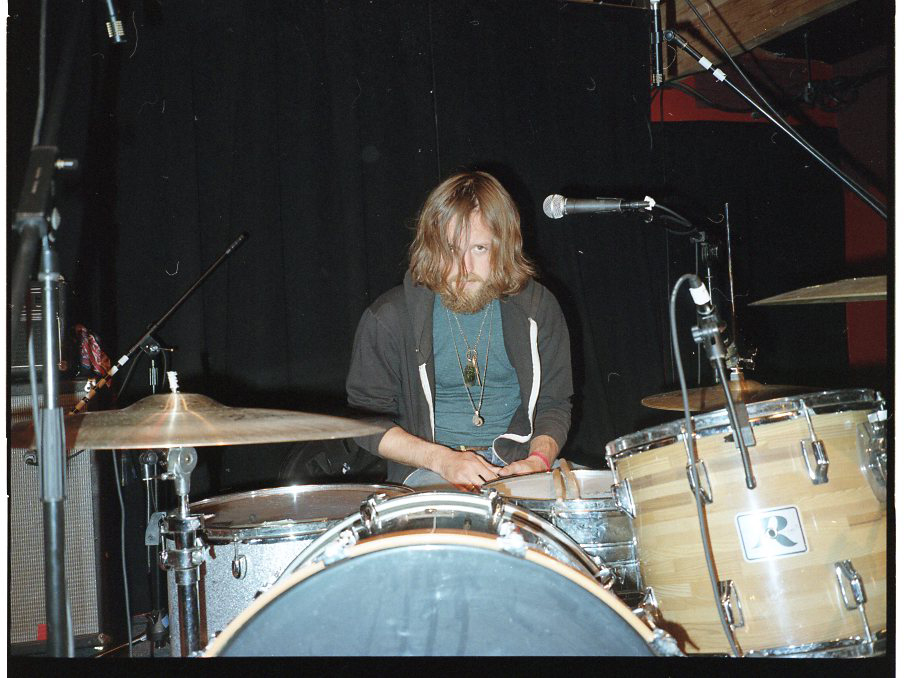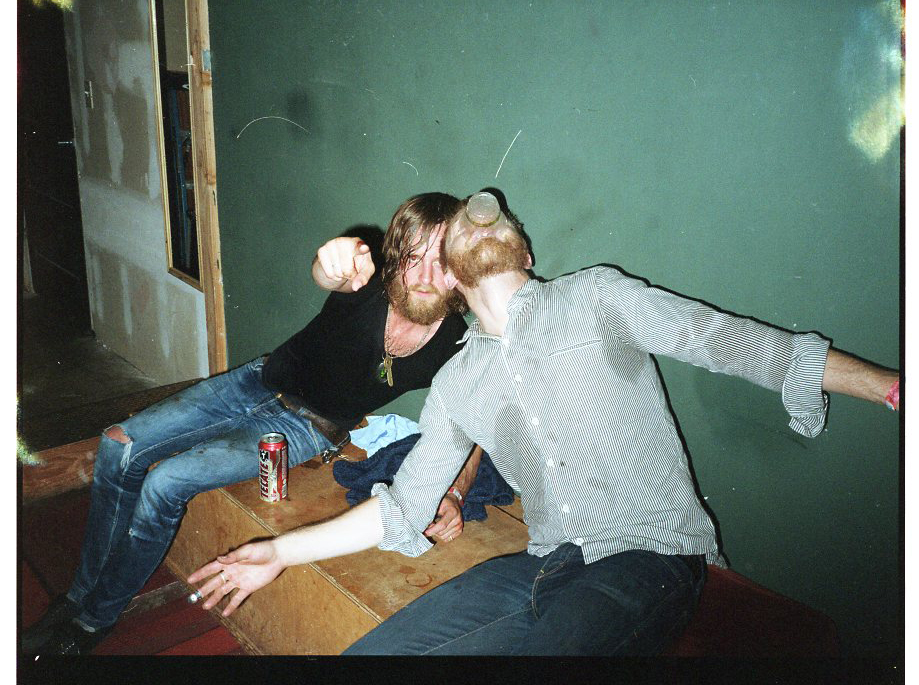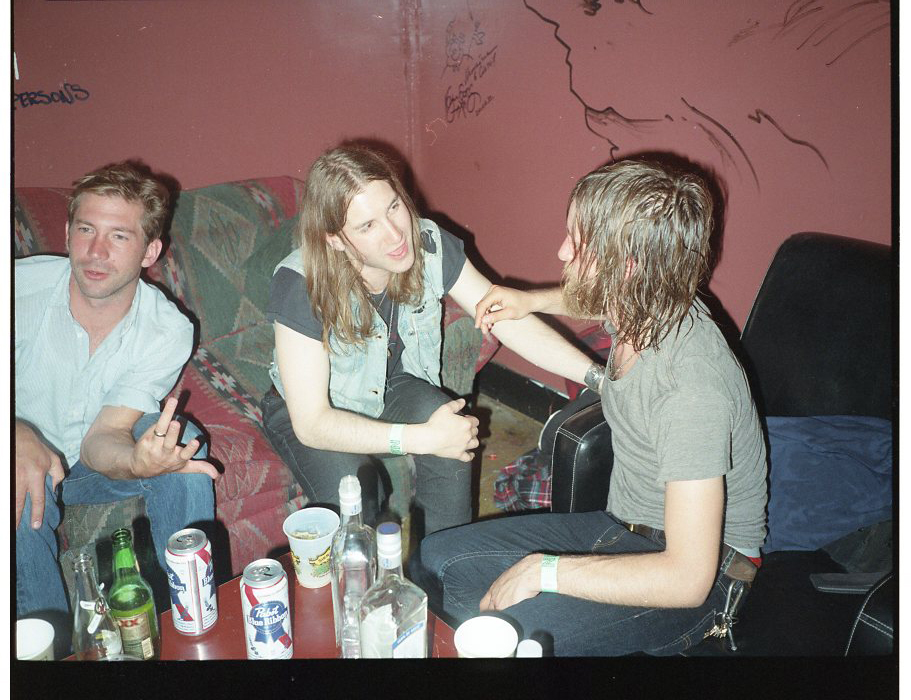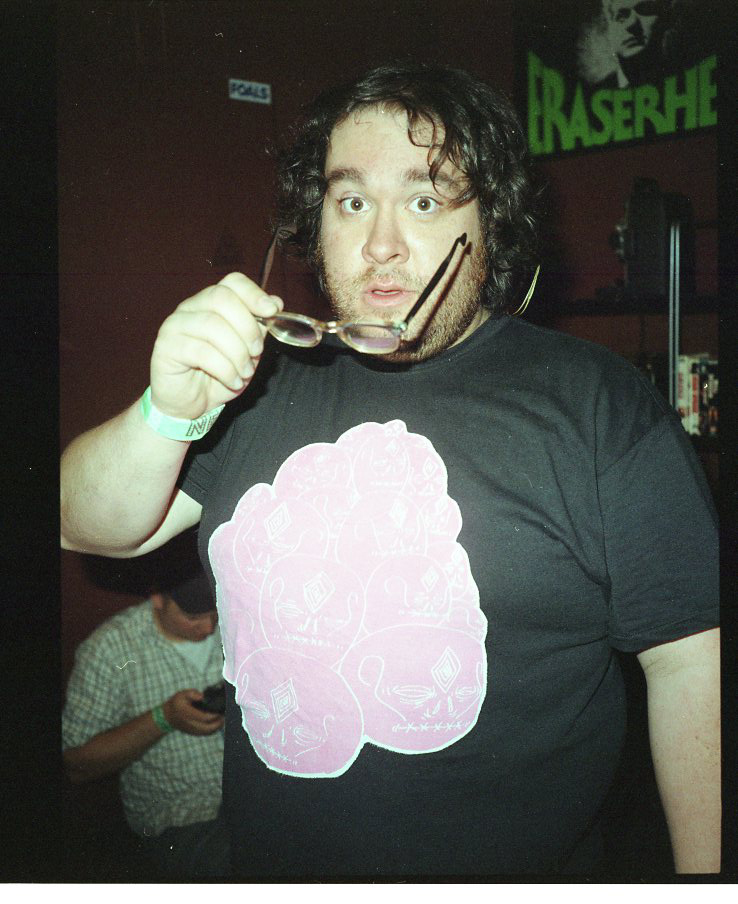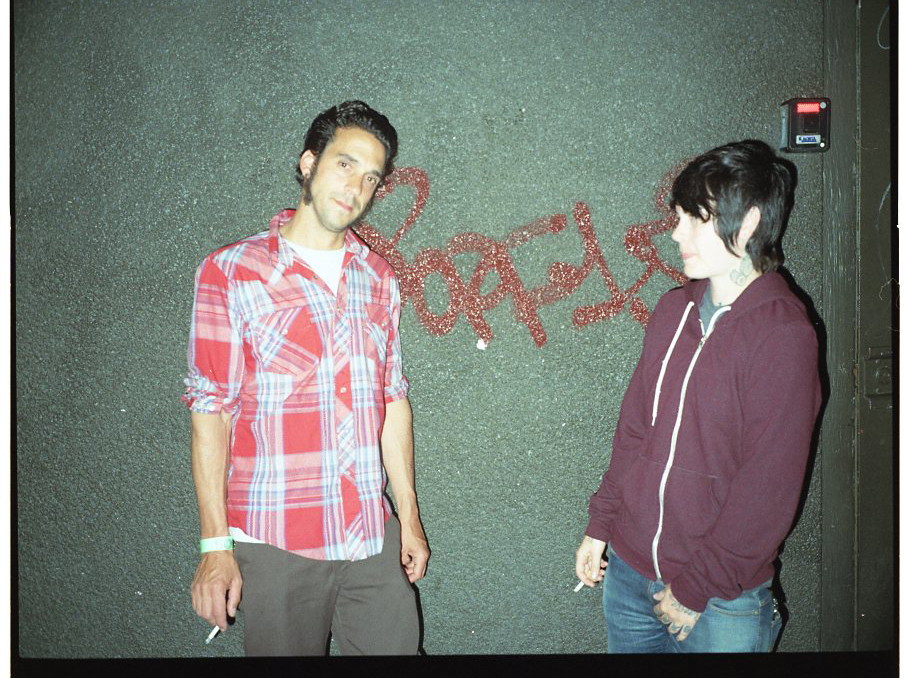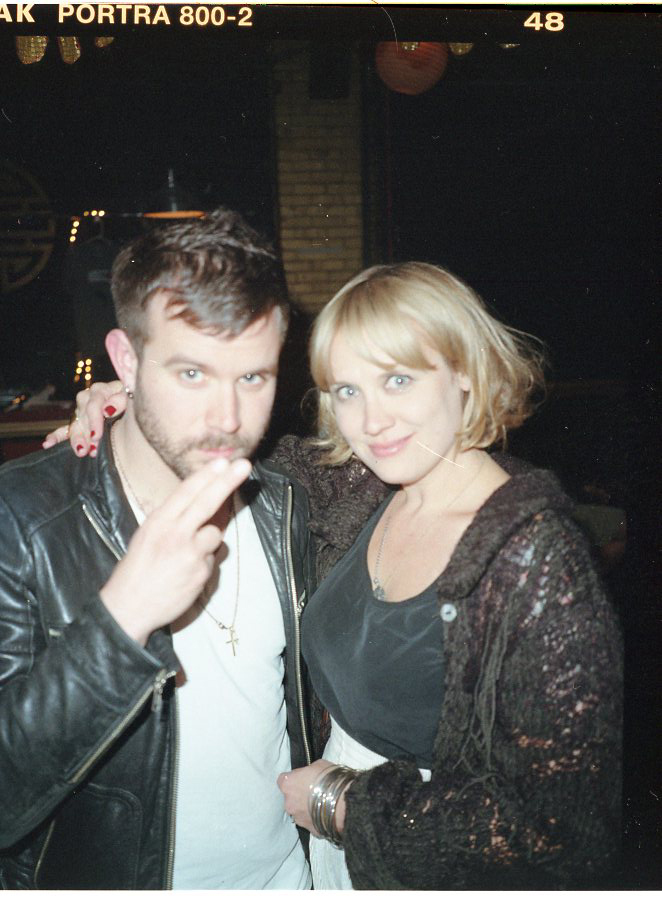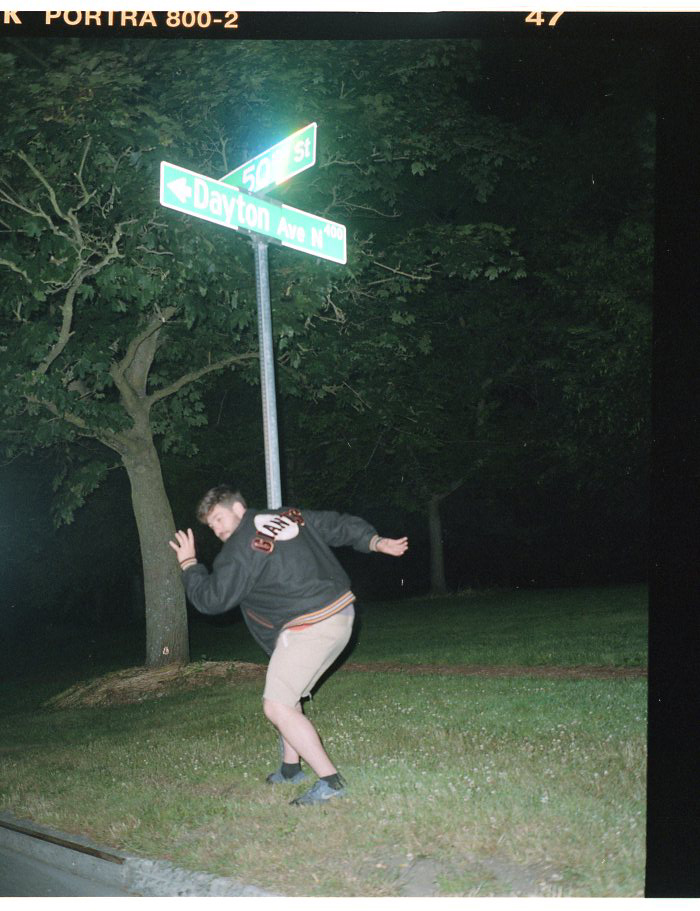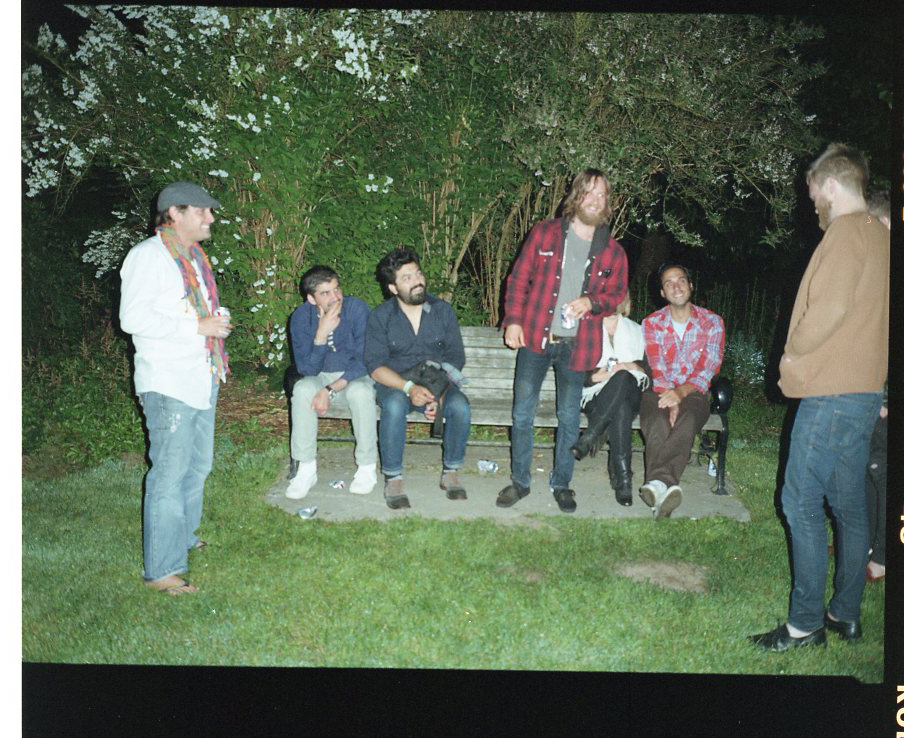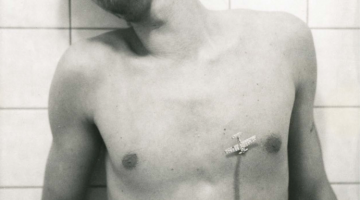SFAQ Editor Andrew McClintock reports from the last leg of the June 2011 North West Tour with Two Gallants.
Untitled from San Francisco Arts Quarterly on Vimeo.
Interview with Adam
SFAQ: Can you talk a little bit about the experience of getting back on tour, your new songs. It seems like you guys kind of have a new energy that I definitely felt on the tour. Can you talk about your new songs in general?
A: I definitely noticed a change. I mean, this tour sort of like, cemented the fact that we’re like back at it in a positive way, which is of course sort of hard to predict. Like when we wanted to start playing in a band together–I can’t speak for Tyson but I was definitely a little concerned that it might not come together in a way that we felt was productive and evolving and moving forward.
SFAQ: And relevant.
A: Yes. I can’t speak too soon about our record will sound like and what the response will be, but I know at least for now, the most important thing for me is feeling good about it. I don’t really care what other people think. And I definitely feel pretty confident about our new music and the response has been pretty positive, and it just feels good to be playing music that, like you said, that’s relevant. That is feels to us like it is really important. I think we kind of thrive on that energy when we’re playing. When we first did the two Bottom of the Hill shows…I sort of felt like we were in a cover band almost. We were playing all these songs that were over three years old. So, basically written by…
SFAQ: You in a different mind space.
A: Yeah. And it’s hard to relate to a lot of it. I mean I still think some of them are really good songs and I still like have an emotional attachment to them, but it’s just coming from such a different attitude and different level of maturity and development. So, these now songs to me sort of just reinvest a sense of urgency and a sense of necessity in what we’re doing for me. It’s been really fun. We had a really great time this trip. Fortunately, a lot of people still like us. I had no idea what it was going to be like.
SFAQ: Had you been told that it would be harder because you took some time off, did people lose touch with what was going on?
A: I just assumed that that’s what would happen. Definitely Seattle was the biggest show we’ve ever had, and the enthusiasm was, I think, pretty palpable out of a lot of the places we’ve played.
SFAQ: It seems like you guys are getting back to you know, rock, like gritty feeling.
A: Well I think we’re getting back to a little bit of our roots in some ways. And by roots I don’t mean like…we’ve always sort of played like “roots” music as far as traditional music. I feel like we’re getting away from that a little bit and moving more towards our personal roots. I don’t know, like Nirvana and Steel Pole Bathtub and Operation Ivy, and all these bands that we grew up passionate about that had some real rough edges.
SFAQ: I was talking to Tyson about this, about how it seems like in Visual Art is seems like a commonplace thing to give pretty clear references to influences, but like, tweak it in a certain way. It seems like that doesn’t happen that much in music, but in your song “I’m So Depressed” you guys play that song referencing that time period and played it in a way that is through your own roots, instead of through the general American roots of music. I think that’s a good way to kind of preface what…like “here this is” and and “this is what we’re taking and holding on.”
A: Maybe in hip-hop but not so much in the music that we play, it’s not considered straight up robbing them. In art, it’s considered more of a statement…manipulating this person’s work. And for us, our influences have always been pretty apparent. Anyone who knows a thing or two about the history of American music will see a lot of references and lyrics and the chord changes and stuff like that, and in some melodies. So there is definitely a little bit of that, and when we cover a song…I mean I don’t see the point in covering a song if you’re going to play it just like the original song. A lot of people do that, and that’s cool, I mean I love great songs. But to me, every time I play a song I can’t help but adjust it in some way, it’s nothing intentional it just sort of happens.
SFAQ: One of the new songs, for example, “Willie Sweet Willie,” do you want to talk about the specifics of that song? Because it’s such a fucking rad song, you know? It seems sort of traditional, but it’s not.
A: Yeah, I mean if anything that is sort of the more regressive song, back to sort of where we came from. The progression is a real simple, traditional progression. Real simple melody, which I think is kind of the hook of it all. The fact that you can kind of hear me, like yeah, this feels familiar but done in a slightly more aggressive edge.
SFAQ: I heard something like ‘math rock,’ like heavy metal chords coming in some of the songs too. Is that appropriate to say?
A: No, totally. I mean, I don’t really know what term I would put on it. There is one new song called “Halcyon Days”. It’s probably the loudest new song we have, there is definitely a little metal, proggy edge to it that I like. It wasn’t an intentional thing, it just sort of happened. I think that’s sort of the thing about our music a lot. Like, nothing has ever been like “this is what our next album is going to be like.” It’s always sort of done for us, it sort of has its own life. For me, I always feel like I’m just kind of following it, or gathering it all together into some sort of sense. That’s kind of how I feel about the creative process in general, that it’s not really in your control at all. When I feel like something really potent is happening, I can sense it, I feel almost like blessed for it to be happening. I don’t feel like I’m doing it. I feel like I’m just kind of absorbing it from around me. I feel really fortunate to have something that I’m proud of that sort of came out of me, but I feel like we’re the medium.
SFAQ: You’re just facilitating that energy.
A: Exactly.
SFAQ: You guys sound a little more musically mature, in a sense. I don’t know if that’s from you guys doing your own separate things, like I would assume it is. Like, from exposing yourself to different elements of music and then bringing that back together. Do you feel like that is true of the time you took to do your own…?
A: Yeah, absolutely. I think we both learned a lot. We had pretty different experiences in the last couple years, apart, doing different music. I think we both learned a lot about the mistakes we made in the past. Not just that but also like you said, both of us have branched out a lot in our musical interests. That’s had a huge effect on the music that we’re playing now. And mostly, for me it’s been acknowledging the value of simplicity. I think so many of our older songs were just a bombardment lyrics, over the top, crazy drums, crazy lyrics, just a little too much. Sort of like sensory overload. Some people seem to like that, but I don’t know. I think both of us have gained an appreciation for simplicity and for tasteful complexity, not overwhelming complexity. I think that has definitely come from us playing in different musical situations and noticing how it feels different to play different kind of music and how it moves you. I don’t know. I’ve learned a lot from playing shows where I didn’t sweat, and it kind of like pissed me off.
SFAQ: Yeah. You guys seem like you sweat quite a lot when you play.
A: Yeah, we sweat a lot. Especially Tyson. He always places with his wet ass, sweaty ass shirt somewhere we have to move it, to get to our shit. To me it feels so much more rewarding to sweat through a show. You get to the other end of it and you’ve really been through something, it’s a fucking struggle. Sometimes we’re in the middle of the set and I look over at Tyson and he’s dripping and huffing and puffing, and yeah, we’re in the middle of some shit. We can’t really talk about it, there’s nothing really to say, but it kind of fits together.
SFAQ: It seems like maybe on tour when everyday becomes a little harder that it’s a work-out. It takes you out of the grind that you’re living in.
A: Totally. But I also feel like the more we’re on tour, the easier it gets. Every time. Every show gets a little bit easier I think, and then when you’re staying up to four in the morning every single night, you just sort of get into this groove and all you really need is five hours of sleep a night.
SFAQ: So you guys are about to go to Europe tomorrow. What would say is the biggest difference for you between Europe and traveling in the states? Like the response, the energy of the crowd, or in a more broader sense, the overall kind of attention to or understanding of what live bands are? The respect level of the audience.
A: I would say there is definitely a greater level of respect over there, but I don’t know what to attribute it to. I think a lot of stuff comes from residual respect for American culture in general. And also that fact that the majority of bands that are internationally popular are American bands. So, here we are kind of jaded, especially in big cities in America we’re used to there being a good show every other night, a good band coming to town. Over there, they get it too, but it’s a little bit less often.
SFAQ: How was the healing process on your shoulder?
A: It was going really well. But once we went on tour, I kind of didn’t keep up with it. I have to do a lot of stretching and I need a lot of time and space to do really awkward stretches and stuff. I need to keep up on it. I’m also supposed to be working out to build up muscle because my shoulder is really weak.
SFAQ: So basically your van flipped when you were on tour.
A: Yeah. My shoulder had a pretty serious dislocation. It was dislocated for about three and a half hours before they finally put it back in, and in the process it developed scar tissue so the majority of the problems are from scar tissue and similar damage in my shoulder and my back. But it will hopefully heal, but I still don’t know. The doctor said I might never get full motion again.
SFAQ: And what part of the country was that in?
A: Wyoming.
SFAQ: And you had just finished your tour.
A: Yeah it was after the last show in Ohio and we were trying to get back as quickly as possible. After two months of tour, all you want to do is sleep in your own bed.
SFAQ: And you guys might be going to parts of Asia later on in the year?
A: Yeah, but it’s not official yet.
SFAQ: Okay we’ll just skip that shit. Do you want to add anything, make any statement? Talk about how popular culture is affecting the music industry or business? Or how things are done, or how you would wish things were done in a different way.
A: I don’t know, I think things are in a pretty good state right now considering the power of the small musician, how in power the small musician is these days. Unfortunately there is not a lot of money involved in music as there used to be, in making records. A lot of people can’t make as good of records. I mean, think of all the shitty records that were made in the 80’s that people spent millions of dollars on that nobody listen to now. Nobody is ever going to listen to them because they’re just decadent crap. But there is this like, middle ground. There is this middle ground, there is still a good amount of money for good bands to make good records. Because I know a lot of bands and I’m sure you do too who are great, but don’t really have any budget to follow through with their talent. So I think that’s a shame that nobody is buying records anymore.
SFAQ: Also in like visual art and in other performance based mediums too, it’s like just because you have the talent, if you don’t have the desire, the means, or the will to bring that out to a show, a gallery or performance venue…then it’s just not going to happen.
A: Yeah, absolutely. I remember being really frustrated when we first started playing. It was sort of like a chicken and egg scenario where we wanted to play shows but no venues would let us in because we hadn’t played any shows yet. You have to have a fan base to get a show, but you can’t get a fan base without a show.
SFAQ: So you guys played at at parties and in the street and stuff like that.
A: Yeah, and I hope that bands still do that. I mean, they do, but it is sort of an important way to come out and get your bearings, make a name for yourself.
SFAQ: Yeah, you get a strong base. I mean, compared to bands like MTV bands that have never played a show before and just get groomed into this position.
A: Yeah, they won’t last. I mean they might have a good amount of fans for a few years but they just never last. It’s crazy how that happens.
SFAQ: Kind of hurts the idea of pure artistic creation.
———————————————————————————————————-
Interview with Tyson
SFAQ: How did you feel the tour went? Philosophically.
T: Philosophically, I think the tour was the beginning stages, or the beginning steps of a larger idea. I feel like it was sort of like the baby step, the first steps to…I guess I’ll use a word that you will understand; sort of stepping into a re-appropriation of an older idea, an older guise of music that we do as a band but have been connected to ever since we were born and living in America. You know?
SFAQ: I notice that the new songs…I mean you’ve always had ties to like blues and folk, but the new songs seem very in that tradition but mixed more with the kind of energy you had in the beginning. More, we’ll use the word ‘punk’? It’s very raw.
T: Yeah, it’s interesting, I feel in some ways that we’ve kind of come in this kind of circle, in this kind of cyclical nature in the way Adam and I play music. I was thinking about it this morning–it is an art form and a lifestyle. I think art and artists, people in general I think, you build something until you want to destroy it eventually. You build and you build and it gets out of your control but eventually you get to a point where either you have to change something, which means you are turning your back to the previous form, or you build off of it and create something absolutely new. Both decisions are kind of a destruction of the previous conviction or deal, but you don’t want to be destructive you want to be constructive. So I kind of feel that like during our time off, and during our separate lives and going in all different directions, that sort of re-informed this new level, this new plane, this new approach to music. I think maybe at this point now that we’re older, we’ve become more fuddy duddy. It’s almost like a regeneration.
SFAQ: Well it seems that on your time off, you guys explored very different aspects of music. You started playing a lot more guitar and singing and writing songs but with an influence by Middle Eastern music in a sense?
T: Yeah.
SFAQ: And also, Adam doing his own thing. It almost seems like you guys are more musically mature?
T: Yeah, I mean I think that we both understand more of what we want to achieve. Before, the music in our process and our chemistry just kind of came out. The songs sort of created themselves, you just never knew what was going to come next. That still is the case, but I think we can kind of focus it more now, we have more of an idea of what we want to achieve in regards to the emotional and larger landscape that we interact in. If that makes sense. So I feel like it’s much more to the point that way.
SFAQ: I like how you guys kind of show reference or give homage to what you’re doing by including covers of songs by Abner Jay and Blind Willie McTell. I guess that’s kind of the context of what you’re doing, which is great to see because usually that’s a visual art mechanism, to show direct reference in that way. But it was very interesting to see how musically you can show reverence by starting a set with a certain song to give context to the new direction.
T: I think in music it is kind of a funny thing, and I guess it happens everywhere. I think in more mainstream music people intend to cover up where they come from as much as possible. And it’s almost too egotistical. That’s where the rock star comes in, you know, these entities that seem to dictate musical culture in our society come from. You forget that all music is borrowed, and borrowed in the sense that it is passed on. That song is like one of the first songs that we did when we first started playing in my mom’s basement. We were like, okay, this seems to be right, because we were giving an homage to this musician who means immense things to both of us, but we also change it and make it more of our own in a reverent way. We want to respect what had come before by making it something different. I think that it something everyone has done in American music since the beginning. I mean jazz alone, is a total re-appropriation of really deep roots from all over the world.
SFAQ: What do you feel about music that doesn’t have a meaning, or roots? All this pop shit that we hear going on in the background here at this fancy ten-dollar cocktail bar?
T: I feel like you can buy it. You get what you are consuming. With no judgement against it, but since it seemingly has no root, it is basically just a commodity at that point. So by referencing older times and respecting what has come before and passing it on, you’re actually creating a larger context of community over time. I mean, you know, we will still write original music, and that’s the point of all art is to be unique…but to pretend like you’re some special anomaly is just kind of false. Everything is informed by what has come before. But I mean, again, no judgement against how that is done. Perhaps in some ways it makes us feel a little less egotistical, and more a part of a larger goal and a larger meaning. Connecting with people from all walks of life, I mean that is what culture is. We don’t want to be a part of the homogeny of the klan.
SFAQ: Never. So you get pretty dirty on the tour. Sleeping on floors, sleeping outside, getting’ weird.
T: Staying up until six in the morning.
SFAQ: Getting up at eight in the morning. That way of living on the road versus driving around in a big bus with a semi truck, do you feel like that might disconnect people? Do you think that’s a disconnection for musicians? Or when people get to that point, does it not really matter because they’re already kind of disconnected in a sense?
T: Well I would say that, and you and I have both been there, all of that stuff is superficial ingredients to a larger intention. Working in these venues around the city and interacting with musicians in a “higher echelon” of success, it has made me realize that it is really up to the individual to choose. You can tour in busses and semis, but you can do it in the right way. It doesn’t mean that your integrity is in jeopardy if you’re at that point. It’s a choice. And on this last tour what was great was that, Adam and I had both been there. We had taken busses and played in front of a thousand people, but the shows we have we go from place to place like a little nomadic tribe, in a dirty van.
SFAQ: It works with your energy and your music.
T: Absolutely. That’s just what works now. In the end, if we were to have a bus or something like that, still pretty sure we’d keep it pretty dirty. The bus call would be like two, we’re running up with grass in our hair, holding your bottle of Old Crow. Again, I think it’s a matter of choice in your perspective in how you approach life. There are also bands that will be in your dirty van and just go straight to the next Motel 6. That’s just their choice, can’t judge ‘em for that.
SFAQ: You say tomato, I say tomato. How do you feel about the the US Border Patrol charging you ten dollars to throw away your flowers in your dashboard, that were actually from the United States.
T: I think at that point, it’s like, I don’t know. It’s got to be done
SFAQ: Little annotation here: A gentleman in the TL just walked by who has a swastika tattooed on his forehead but also has an Obama Hope tattoo on his left thigh. But it’s the Shepard Fairey one. He’s wearing a Giants backpack, he’s a pretty big character. A staple here in the Tenderloin, which is kind of an anomaly for City. Do you want to say anything about the TL?
T: Oh yeah. It’s a beast.
SFAQ: It’s a beast we search out.
T: Yeah. And I think you and I forget that this is an abnormal lifestyle down here. But it’s just there. It’s life, in your face at every moment. Really brutal life. A lot of it. But that’s what makes this place so special. This city was built off of that kind of energy, which is why it continues to be here. In a safe way, to a certain extent. Apart from like, stabbings. And crack smoking. And poop at your feet.
SFAQ: So you guys are about to go to Europe. So obviously there are a lot of similarities between Europe and the United States, but what would you say is the biggest difference?
T: I just think that from my own experience, what I have concluded in regards to music and artistic pockets, that it is a much more rooted, educated and informed cultural ceremony. It’s different here in America because we are such a young country, and we’re so attached to consumerism. I hate to use the word, but capitalism. But it is a true thing that we tend to forget because we are in this land of freedom.
SFAQ: Do you feel like the attention spans of people in the U.S. are less than those in Europe?
T: Yeah I think so. But I’m also kind of intrigued to kind of see this trip. We really are on the cusp of a lot of things. With the inception of facebook and globalization of technology and connecting us with everybody all over the world…I’m just intrigued to see how that has changed things if at all. All of the people that pine to go to Berlin or want to move to London, it’s just becoming this larger world-neighborhood-apartment. You can choose your level.
SFAQ: So I’ve been talking to Jens Hoffmann who is curator of the Istanbul Biennale this year and he was talking about how, especially now in visual art, there’s just no center anymore. There’s no Mecca.
T: That’s sort of true, like what is meaningful to our generation is very interesting to me. I don’t know if music has the strength that it used to have, or paintings, or whatever grassroots street art. It all just seems to be a hype machine at this point.
SFAQ: What I did last night, what your friends did.
T: Yeah. I’m just intrigued to see if it’s been diluted.
SFAQ: For me, you know, being on this tour, I notice so many people taking pictures with their cell phones and they’re not even really watching. And I mean, I am guilty of that as well. Especially as a “journalist”, it’s detaching yourself from the thing, and you know, whereas music is supposed to be a part of the human experience. When your hair stands on end when you see live music.
T: It’s funny to think that maybe it’s all just semantics at this point, but that the catalyst to the hair standing on ends thing is that perfect shot you can return to over and over again. And it’s not just the fleeting aspect of taking it in at that moment, that you will never get again. I mean why do you collect art? Because only that piece of art exists, that one, is the only one of them. There’s this great multiplicity and you can pass it on in this ethereal medium, I just wonder how that is affecting us much deeper not only as a global community but in our immediate community. What we view as being important, or truthful. It’s like that game telephone you used to play. You say one thing, you know. How often does that happen everyday with the truth? With that one moment? Like oh, man, that girl is was so hot. On the computer, but then you saw her in person. It’s as simple as that. It makes me feel uncomfortable, or anybody to be voyeured upon. Are you being represented correctly? But do people even care at this point? I don’t think so. But maybe you shouldn’t. But at the same time, what happened to the revolutionary, that held standards?
SFAQ: Why does Mr. Facebook get to tell us how to contextualize our lives?
T: And interact with one another. People forget that there is a like, a small community of very rich men at this point. Dictating how we socialize and how what we do is important.
